COVER STORY

VOICE OF THE PEOPLE
TIME ENOUGH WE HOPE
Aragalaya. Struggle.
Phonetically oppressive words. Here we are. Nearly two months into its trajectory.
A prime minister deposed, another imposed. A parliament in disarray.
A president not gone home – Mrinali Thalgodapitiya
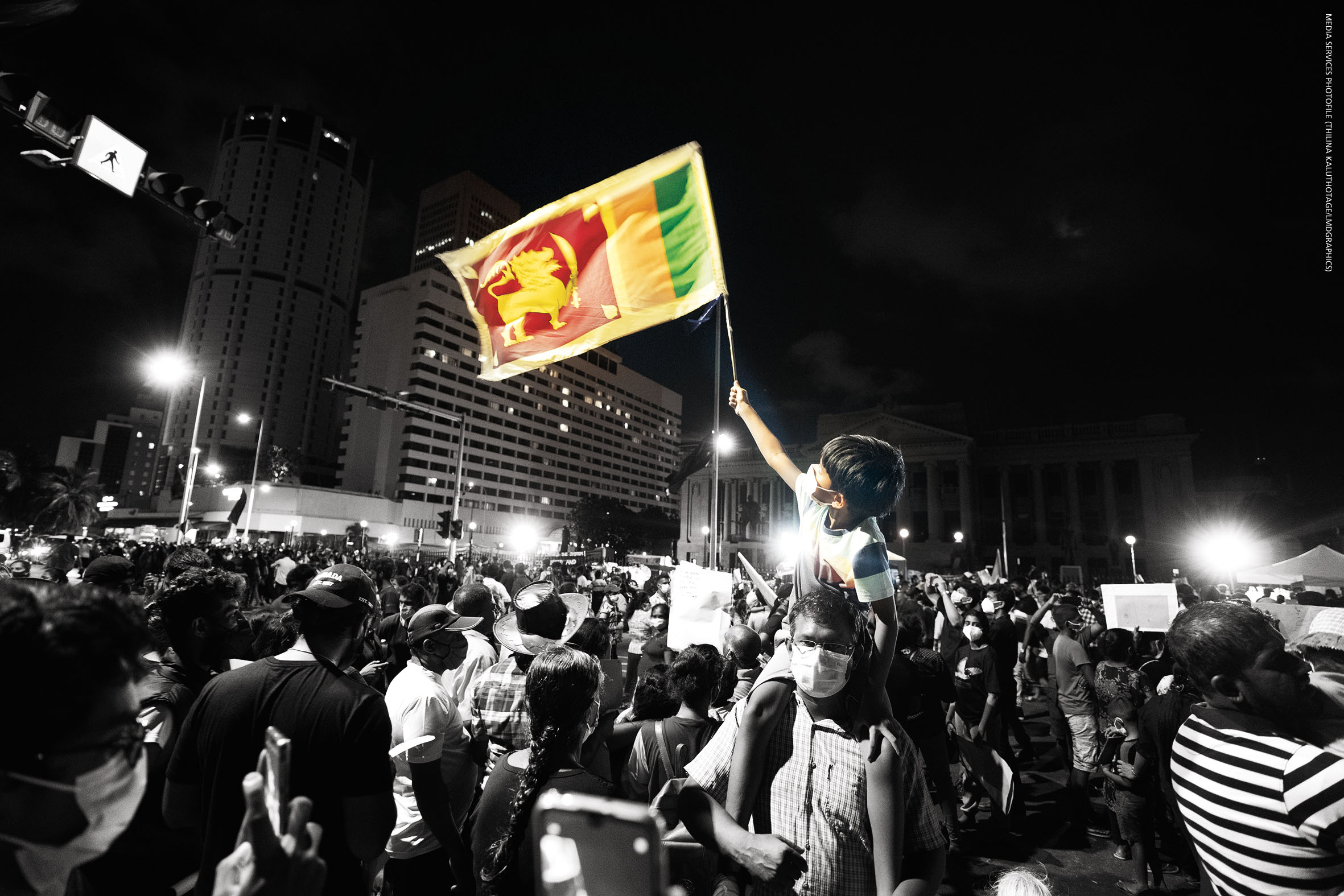
What do the brave young people who stood up and raised their voices for us all have to say now? Surely, this is not what they hoped for, strove for; all those days and nights in the heat and rain, in hunger and thirst.
Aren’t they owed more than this?
Yes, we have heard it all and there is no more to say of any consequence of the corruption, the mismanagement, the sheer venality and greed, the cronyism… only that they are quite a lot of unpleasant and ugly words – and they’ve been a reality for too long.
The burning questions are…
Where do we go from here? How do we make that journey when we have to make it with no money, no fuel, no freedom of movement, no medicines, no food?
Who is the Pandora who unleashed these and more?
And is it Hope or Deceptive Expectation who still lurks in the jar?
It was Hope. But has Hope emerged as he truly is – Deceptive Expectation?
No. Enough.
Will those who led our children to the peaceful protest sites come forward with clean hands and pure intentions to succour these generations named for the last two letters of the alphabet like an ill omen from a Greek tragedy?
For they – and the rest of us – need Hope. In every struggle through the ages, it is Hope that sustained the sick, the starving, the weary, the worn. Do not deny them that. Allow them – and the rest of us and all the voiceless of this nation – Hope.
Nation build from these ashes but do it right this time. Do it the right way, for the right reasons – this time – and forgive the use of a tired old cliché: it is the merest of what is owed.
For the first time in 74 years, our intrepid young taught the rest of us a lesson that even independence could not – to be Sri Lankan. Even in the midst of the struggle, they made time and space to celebrate being Sri Lankan in all its communal colours.
They called it a satang bhoomiya but waged their war with love, and camaraderie and care, and kindness and creativity, and many other rather pleasant and inspiring words.
Let’s reward them with tangible realities of what they cried out for – peace, justice, transparency, accountability, meritocracy – and other such words that belong to the lexicon of a burgeoning democracy.
Don’t let’s play politics anymore. It’s a tired old game; and it should be given a rest. Let’s try something different – play a game that the young people at the table want to… for a change.
Surely, we can all be open to that – especially when we have no more cards left to play, and the chips are well and truly down?
Let’s try a new game with a new set of rules, a game in which you do not have to pass ‘go’ to collect 200 or a ‘get out of jail free’ card up your sleeve. Isn’t Sri Lanka more valuable than any hotel you will build on Park Lane?
What is done is done. The past belongs to no one. We can only use its lessons so that we do not walk the path of Sisyphus in perpetuity. Let’s take a lesson – or several lessons – from the youth… of love and peace, and a desire for something greater and better than what has gone before, and called itself Sri Lanka.
Enough.
STATE OF PLAY
CHAMPION THE IDEALISM CONDEMN THE IDIOCY
Wijith DeChickera bows before an idea whose time
has come – despite subversive attempts to discredit it
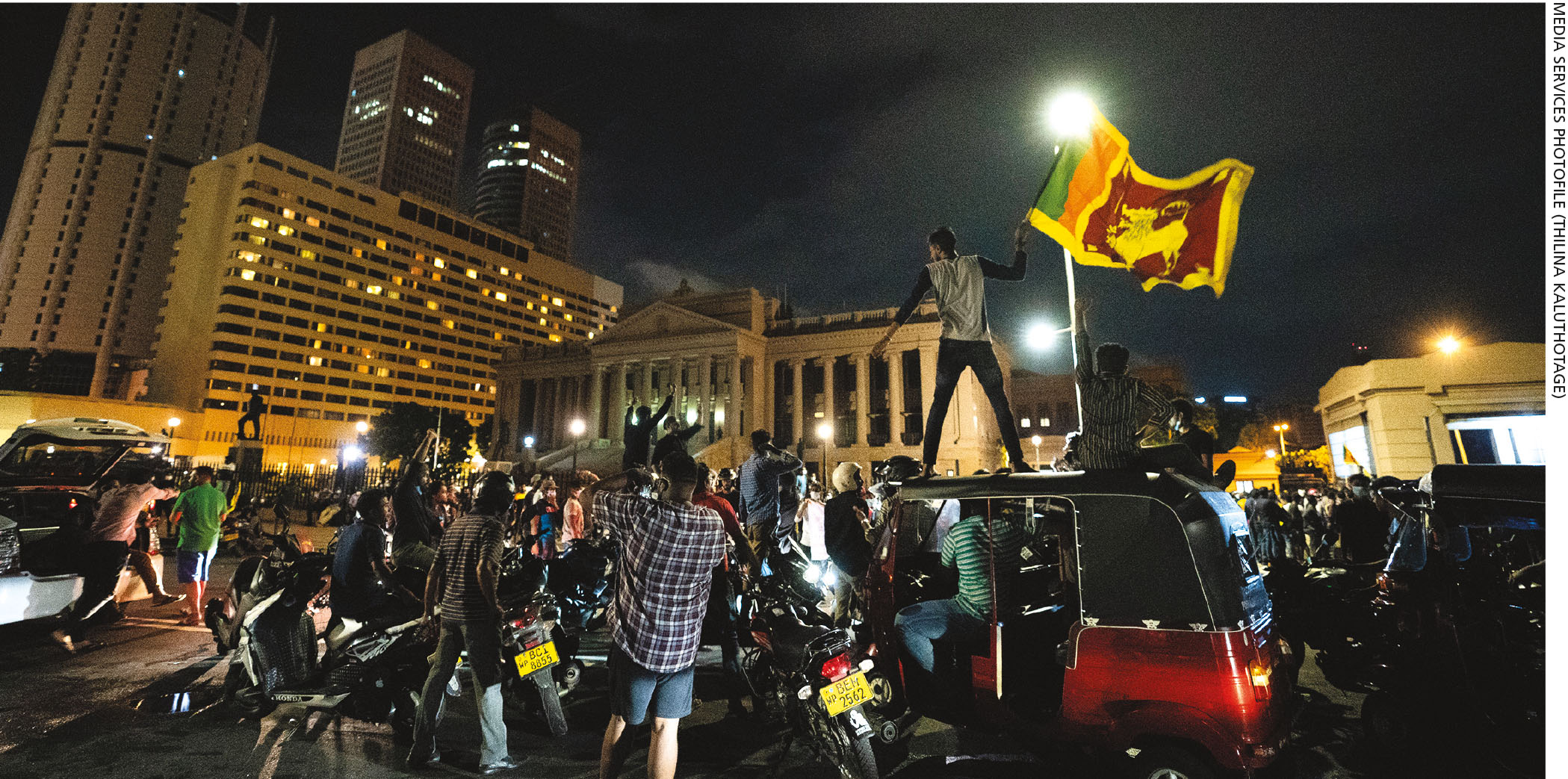
There are few things as powerful as an idea whose time has come. Equal in potency are the challenges mounted against such an idea. So when the two collide, sparks are bound to fly – and skulls get cracked!
The organic people’s movement that has occupied Galle Face for more than a month is a rare phenomenon.
It was the spontaneous overflow of strong emotion felt by citizens from all walks of life who were outraged at the state of the nation and its root causes – including corruption; abysmal economic management; and petty, pointless politicking across the party spectrum.
So one can imagine the sense of outrage when state sanctioned thugs set upon the peaceful yet vocal protestors one fateful day in May. In addition to brutal attacks by hired hands incentivised by disgraced political actors, the inaction of the police in reducing the protest site to ruins was a painful body blow against the fiery spirit of the ‘aragalaya’ (struggle).
To add insult to injury a few days later, allegations that the idealistic people’s movement had been infiltrated by political actors came as a hurtful postscript to the devastation of GotaGoGama (GGG) – the iconic protest site that served to unite Sri Lankans in a single cause as perhaps never before.
In fact, revelations that it had been a Trojan horse – a group of subversive politically motivated interlopers – from inception were particularly harmful to the idea.
It now appears that what was widely thought to be an apolitical uprising was coloured from the outset by the participation of agents of the youth wings of the Janatha Vimukthi Peramuna (JVP).
The accusations stemmed from the JVP’s admission – albeit on social media in the main – that they had been present from day one at ground zero. This resulted in the regrettable withdrawal of moral and logistical support that a gamut of stakeholders in ‘Garrison Colombo’ (like-minded apolitical citizens) had been providing ‘Occupy Galle Face.’
There are many ways to view and interpret these events, as well as their aftermath and ramifications.
For starters, there is no way that an idea whose time has come – i.e. that the people are sovereign – could or should be compromised by the presence of representatives of political parties at the protest site… if such individuals were there primarily as citizens and not to plug a party line…
For one, no one but the most naive onlookers would imagine that there wasn’t a smattering of trade unionists or members of the politically aligned Inter University Students’ Federation (IUSF) there.
For another – as claimed by defenders of the JVP’s participation in the emblematic protest – there was an acceptance by and large that the IUSF was not there to promote its parent outfit; but rather, to press the people’s case in the face of an obstinate and discredited government that refused to (as it was being asked to) ‘go’! With that said, it is possibly only the most charitable observers who would not attribute subversion – and perhaps even suborning insurrection – to the traditionally militant JVP.
Despite its self-confessed rejection of violent means to achieve its ends as in the past, there is an ongoing suspicion that sleeper cells of the party’s numerous overt and covert arms were active on the national stage during the more anarchical phases of the people’s response to the havoc at GGG.
We have to condemn both the wilful destruction of a peaceful citizens’ protest, and the ensuing carnage as revolting elements set fire to state and private property in retaliation, with no reservation.
Be there is no gainsaying the reality that nothing – neither state nor subversives – can stand up to or undermine an idea whose time has come… be it ‘good governance,’ ‘a disciplined society’ or ‘people’s sovereignty over political actors.’
If the proponents of these ideas fall far short of the noble values they espouse, that is by no means proof that the ideas themselves are invalid.
So long live the people’s struggle – despite (or because of) state sanctioned thugs and subversive terrorists alike!
It is the ‘last, best hope’ of a nation that is reeling – and realising that realpolitik rules the roost, to the regret of the political and apolitical as well.
WAY FORWARD
REAL CHANGE IN SIGHT
For the first time, I have hope of real change – Otara Gunewardene
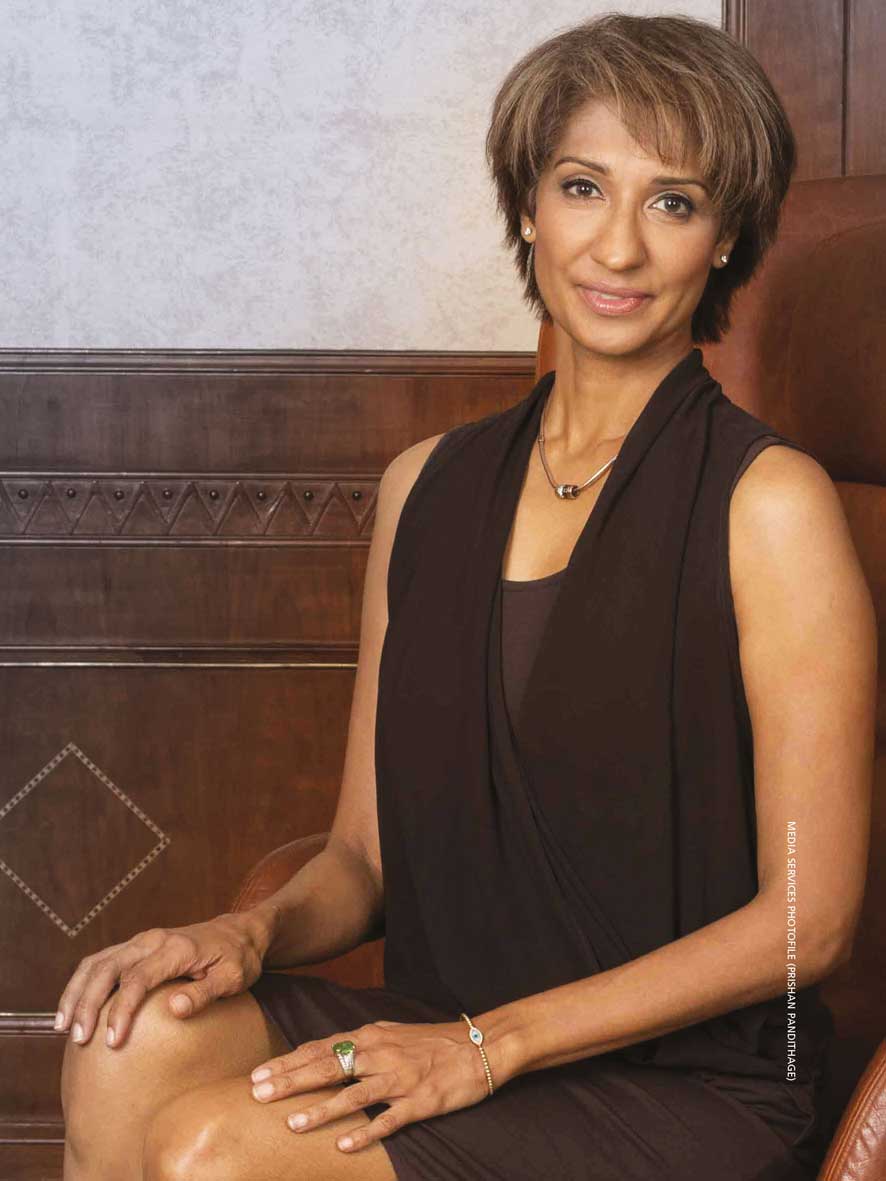
Q: How effective can people power be to instigate real change?
A: A majority of the time, we individually and collectively underestimate the power we have within us, and as a community. This power can be used for things that are destructive but also for immense change for the greater good.
We’re regularly manipulated and told how we should behave, think and act; and unfortunately, a lot of this isn’t for our good – it is mostly used to control us for the benefit of a few.
We seem to have decided to accept this way of living and being governed; and we remain in our comfort zones no matter what happens, carrying on with the status quo, and accommodating the worst of actions and situations.
However, I think we finally see that when things affect each and every one of us, we’ve awakened as a collective. It’s no longer someone else’s problem.
Finally, we’re realising what so many others have experienced and wonder why we have done nothing about it. Great change for the good can be achieved with genuine people power. We see more unity, talent, dedication and love, for each other and the country today.
We have some way to go but I think we’re finally on the right path and moving towards a positive future.
Q: What is the importance of accountability, transparency and discipline going forward?
A: This is extremely important. From my experience of having started a small business and expanded it over the years, the most important factors are accountability, transparency and discipline.
You can’t expect a company to prosper if you don’t have discipline and transparency in every key area of the business, and the accountability of those who lead it.
Why should a country be any different? Why do we not expect this from our leaders and government?
Again, as responsible citizens, it is our duty to ensure this happens. Accepting anything less exposes a huge flaw in each of us and our own sense of accountability because we’re not separate from what happens around us.
Q: The importance of a culture of zero tolerance for corruption is…?
A: One might believe that zero corruption isn’t possible to achieve and maybe it is not, where a country is concerned; but it certainly has to be the absolute goal for us all.
I believe we can then achieve near zero corruption, and a fair and just society. It is extremely important that people are held accountable for any form of corruption and the law should apply equally to everyone.
Q: And what are your aspirations for Sri Lanka in a new era?
A: Things may seem to be in a mess; the economy is a disaster and there is immense suffering every day for many people. But for the first time, I have hope of real change.
A country is only as good as the level of consciousness of its people. When we accept corruption, we should know that there are many people who don’t care it exists or who condone it. The same goes for other issues like poor healthcare services, abuse of children and animals, and harassment of women.
When we want a country that is free of corruption, when we want conscientious leaders who are willing to serve the nation and not themselves, and when we want to live in a country in which we’re safe and genuinely happy for one another, everything will change for us – and for our country Sri Lanka.
I think we are on our way!
REAL CHANGE
A NEW PARTY FOR REAL CHANGE
We have to channel this newfound energy into parliament – Rohan Pethiyagoda
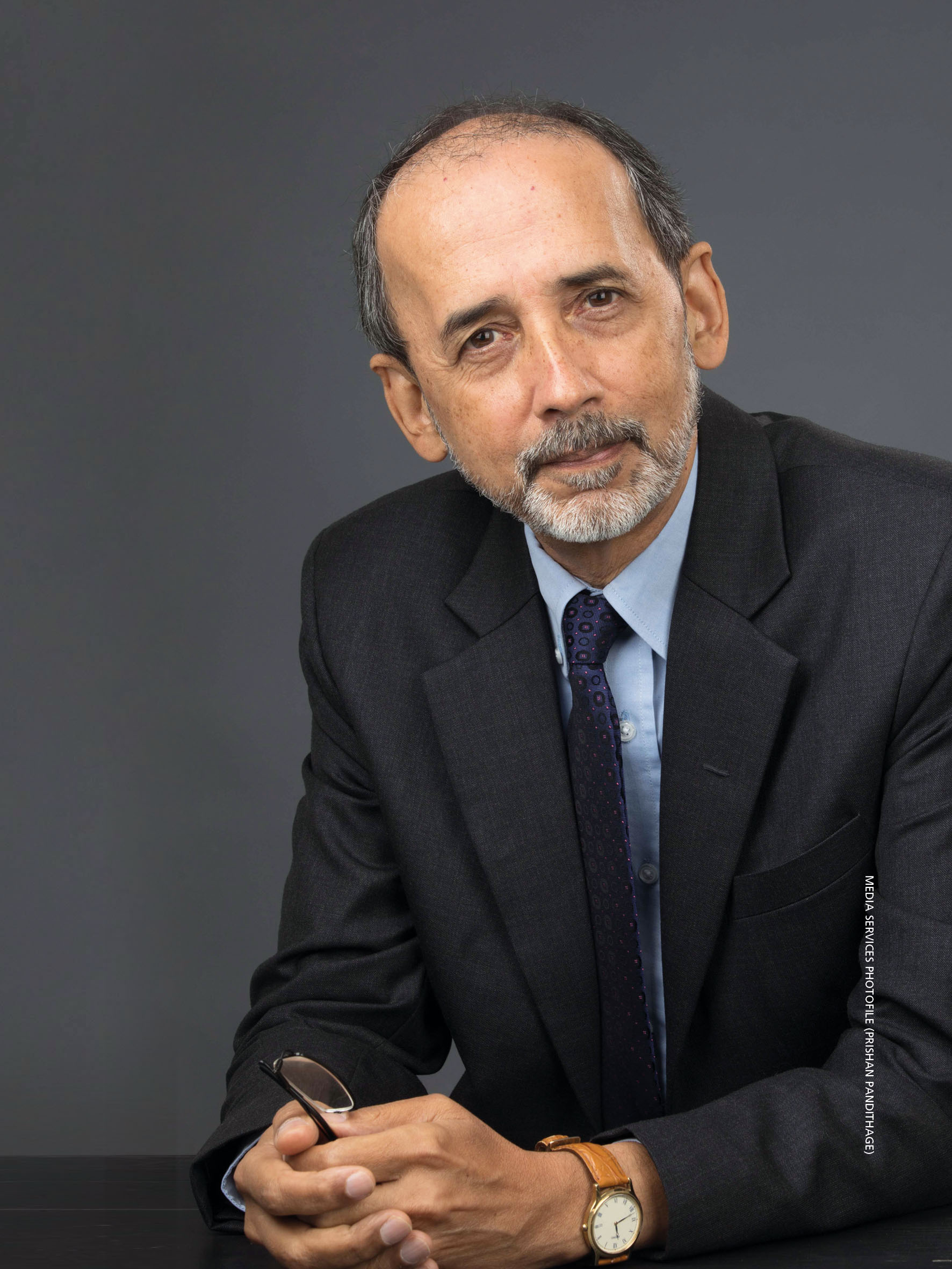
Q: Can people power bring about real change, in your opinion?
A: If you look at the Arab Spring of 2010/11, it would seem that people power often doesn’t end well. It certainly didn’t in Egypt, Libya, Syria and Yemen: those countries ended up worse off than before.
The problem with popular revolts, especially when they’re not politically organised, is that an unintended third party becomes the beneficiary. Another weakness of popular revolts is that the various participants wish for different outcomes.
Some uniformity in messaging is necessary – it avoids anarchy. But I understand why the GotaGoGama protesters aren’t electing a leadership: that would present the government with too tempting a target.
I have no doubt that people power will succeed in forcing the president out of office; but because the protests are (thankfully!) peaceful, it may take longer than they wish. And I think the whole country has come to the conclusion that the president has to go.
So yes, people power can instigate real change.
But for enduring change, it must organise politically – even if this is through a new party. We have to channel this energy into parliament.
While all that is well and good, we need to keep in mind that people power means demanding unconstitutional intervention: the premature resignation of a constitutionally elected president.
Such interventions can be used only rarely in extreme circumstances. I think most people accept that the present circumstances — agricultural collapse and national bankruptcy — are sufficiently extreme. But if interventions like this are resorted to every time people are disgruntled with a government, it will lead to anarchy.
Q: The call for zero tolerance of corruption – is this realistic?
A: This is difficult given the limitations of our police and the judiciary.
Remember that when the Commission to Investigate Allegations of Bribery or Corruption (CIABOC) was enacted unanimously by parliament in 1994, we had so much hope. But CIABOC has turned out to be a damp squib.
Similarly, there is too much political interference with the judiciary. Politicians should have no hand in the appointment, transfer and promotion of judges and police officers. The police and judiciary should be absolutely independent, subject of course to parliamentary as well as civil society oversight.
Additionally, justice in Sri Lanka is painfully slow. Judges should be incentivised to get on with it.
The freedom to openly criticise judicial decisions should be enshrined in law. Judges are public servants just like any others, and their actions must be subjected to public scrutiny. They should not be permitted to hide behind a veil of privilege.
Weak judges must be weeded out by their peers. Contempt of court should be restricted to cases of noncompliance with judicial orders – and cases of contempt should be tried by a court other than the one injured by the alleged contempt, and always subject to judicial review.
Contempt is not the same as lèse-majesté. If you are wondering what this is, good; because it is a completely outdated concept that has no place in a liberal democracy. Neither does ‘contempt of court’ as we know it today.
I also feel that corruption is one area of law in which the presumption of innocence should not prevail. If I have unaccountable assets, the onus to prove that they belong to me should be mine, not the state’s.
Finally, given the high degree of alleged corruption in the police, we need a strong and independent internal affairs division of the police – again with civilian oversight.
Q: So where do we go from here?
A: There are no quick fixes for Sri Lanka’s predicament. Only patience, perseverance, hard work and lots of good luck will get us out of this mess even in a generation. The road to recovery will be slow and painful.
STATE OF ART
DYNAMICS OF THE ARAGALAYA
Fazmina Imamudeen analyses the ‘struggle’ and principles that underpin it
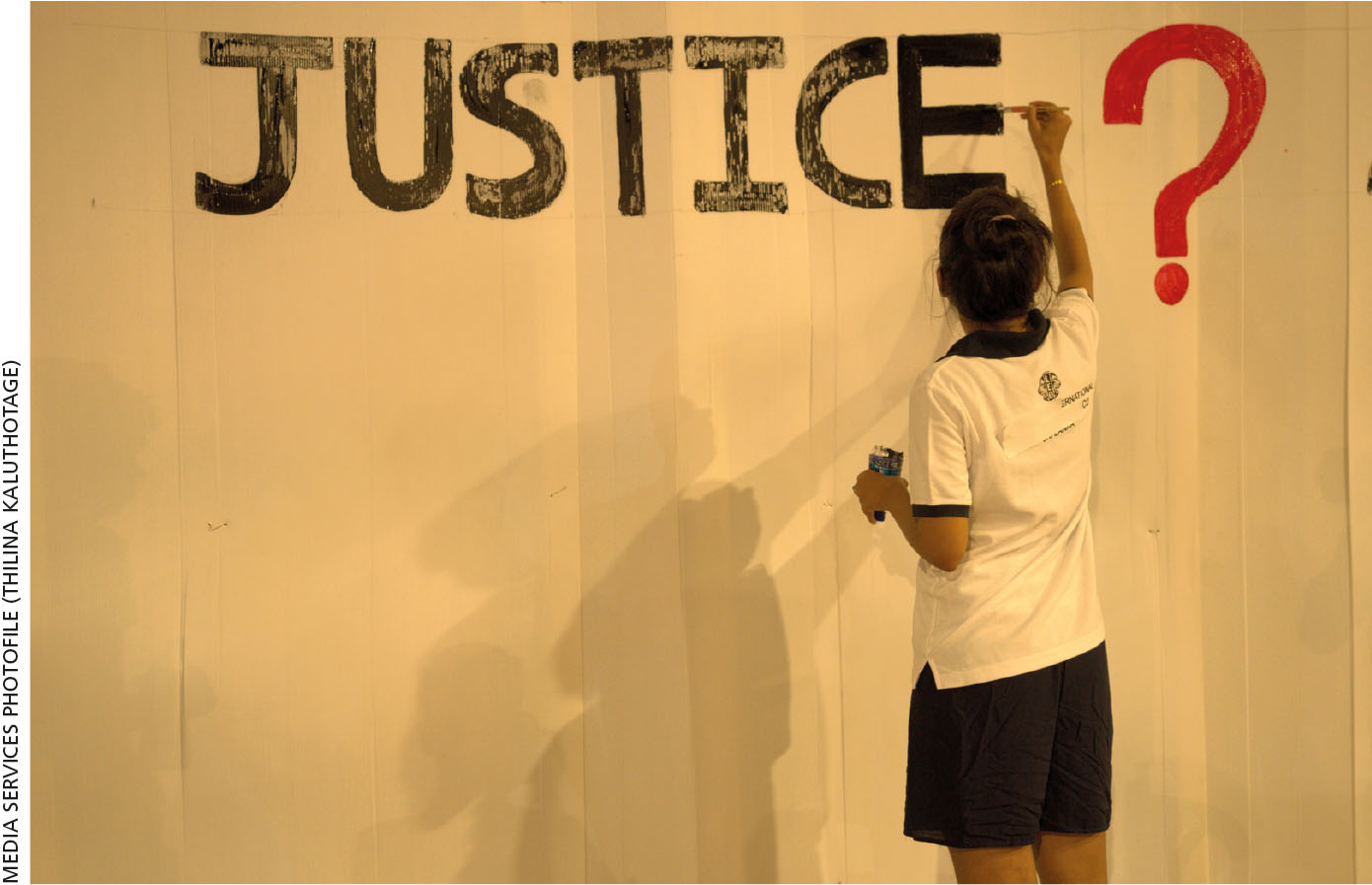
“I do not think, Sir, you have any right to command me merely because you are older than I or because you have seen more of the world than I have; your claim to superiority depends on the use you have made of your time and experience…” – Charlotte Brontë (in Jane Eyre).
Sri Lanka’s salvation is a new generation of youth that liberates it from decades long shackles of bloodshed. Long and sorrowful, Mother Lanka has helplessly witnessed the lives of countless Sri Lankans being buried in her soil… some, she is aware of; and many lie within her womb, yet to be uncovered.
Riots and the darkness of rage marked the instability of the 1970s and ’80s. Terrorism and military atrocities consumed the lives and livelihoods of innocent people for more than two decades.
This was followed by social and ethnic upheavals, and turmoil that led to a horrifying sequence of explosions and riots, which tore Sri Lanka apart despite her desperate efforts to keep her children together.
The corrupt political schemes have ravaged her. However, the moment has arrived for her to rise like dust now, indomitable despite being continually crushed by history.
Sri Lankans are articulating their right to freedom of expression and speech to a degree that has never been seen before in the country’s history due to its economic predicament and mainly absent leadership.
The younger generation, which firmly adheres to the principle of ahimsa (nonviolence) has grown into a community of creative expression that inspires the entire nation. These demonstrations, which are nonviolent and innovative, are being led by the youth for the most part.
Grassroots demonstrations known as the ‘aragalaya’ have emerged spontaneously and there seems to be no prominent leader. On the face of it at least, they have been sponsored, organised and supported by the people themselves rather than any one political party.
The aragalaya is strengthened by students, teachers, doctors, lawyers, artists, musicians, cricketers and other professionals. Regular men and women are given a voice, a face and an identity at GotaGoGama, which began life on Galle Face and has spread across the island.
It is a place where people gather to express their resentment and distress through art, music and drama. Every man and woman can say their piece and new ideas are allowed to flourish. Everyone from painters and musicians to theatre actors, and all those with an artistic bent, help make this metaphorical battle more aesthetically appealing.
GotaGoGama functions very much like a university in its own right. It’s a place of learning, and a destination that enriches the experiences of all those who visit through the mediums of painting, acting, singing and whatnot. It is a melting pot where diversity is celebrated while inspiring one another. This is not a hamlet built upon rage or hatred – instead, it’s a village of hope.
On 9 May, pro-government supporters assaulted protesters at GotaGoGama and MainaGoGama. And they destroyed the latter, which had been set up in front of Temple Trees. This attack and revolt posed a danger to the fundamental principles upon which the people’s protest was founded, namely peace and ahimsa.
The GotaGoGamas at Galle Face and in Kandy stayed relatively peaceful even though the attack left the protesters, as well as much of the country, in shock. Eventually however, the provocation by pro-government supporters resulted in a violent response by angry citizens around the island.
It was a solemn sight to watch artist Sujith Rathnayake create art from the ashes of his work that had been burned the day before – a phoenix rising from the ash of tragedy. He was creating art using the char and silently challenging the system through his creativity.
Prime Minister Mahinda Rajapaksa resigned soon after the chaos on 9 May. For as long as they have been in power, the Rajapaksa family constituted a formidable entity but the aragalaya has eliminated many cogs in this machinery. Of late, only one member remains in power – President Gotabaya Rajapaksa.
What’s unfolding will go down in the annals of Sri Lankan history. Citizens of this nation do not fear law enforcement authorities and the military – nor do they countenance emergency laws.
They stand tall and together, in rain and shine. People continue to protest peacefully, braving not only the weather but also any threats by government forces. Nothing seems to discourage their determination to achieve the goals of the aragalaya.
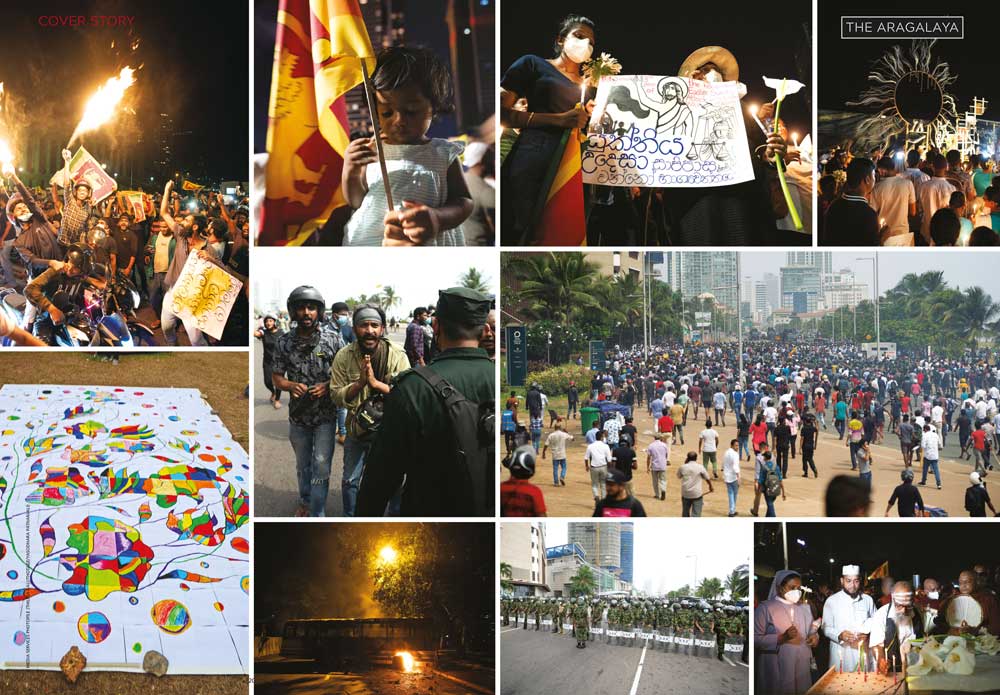
THE GENESIS
ENOUGH IS ENOUGH! When the brave people of Sri Lanka took to the streets in peaceful protests in and around the commercial capital, despite the imposition of a curfew in the first weekend of April, Team LMD decided that enough is enough too. So we joined the bandwagon on 4 April – when the first of what was to be a unique movement of people power took root at Independence Square – in a show of solidarity with what was to become an islandwide demonstration not only against the ruling regime and our parliamentarians in general but also an unprecedented call for an end to what’s led to the downfall of a blessed island nation over the decades – corruption. We were not to know at the time that the epicentre of the protests would shift to Galle Face Green where right thinking people of the nation (and indeed, the world beyond its shores) were to witness a spectacle not seem anywhere before. It is our sincere hope that this unique movement will remain apolitical with no room for infiltration by any politicians, no matter what they say their ideologies are – because they’re part of the problem. May people power win over a rotten state because
enough is enough!
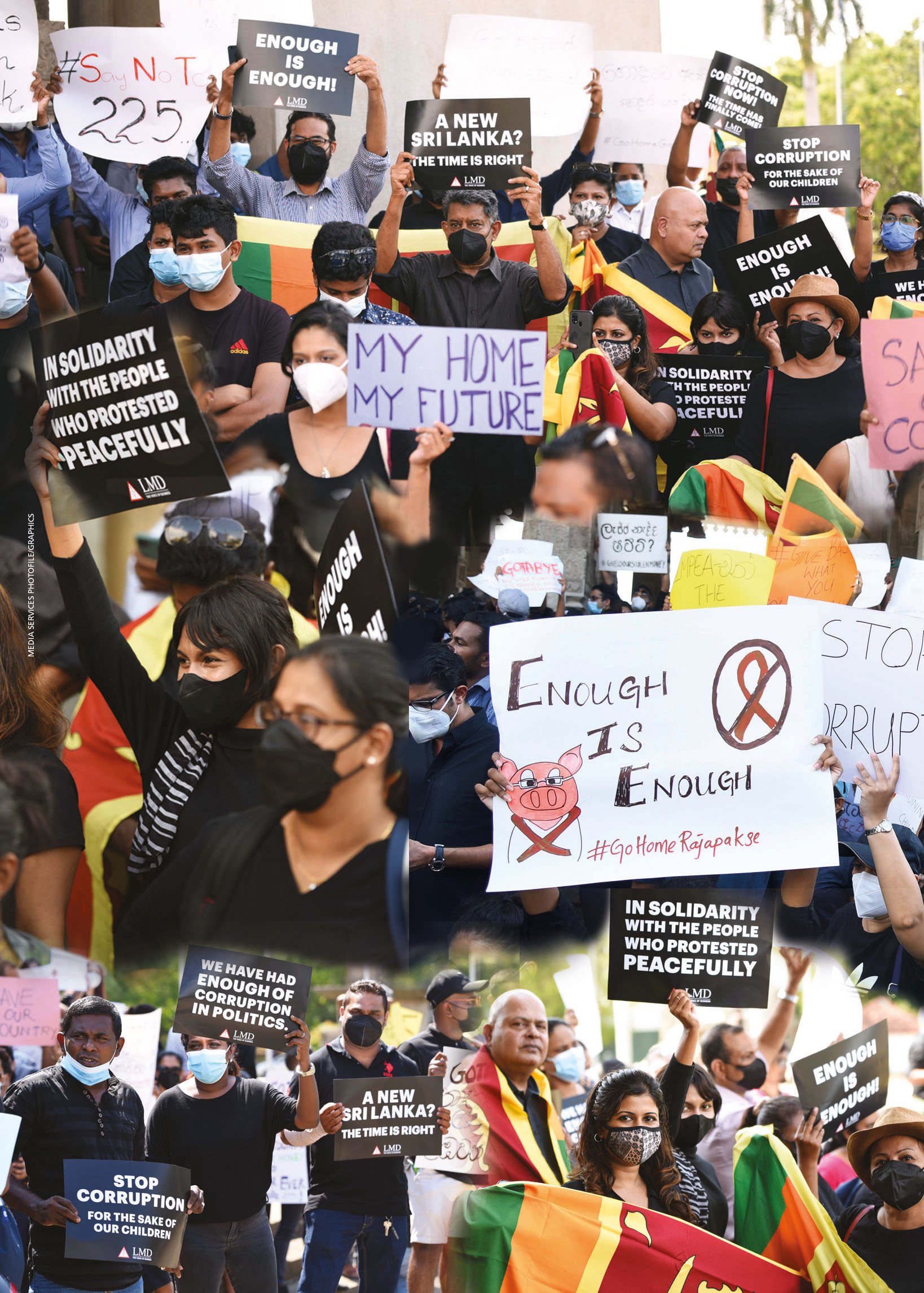
BALANCING ACT
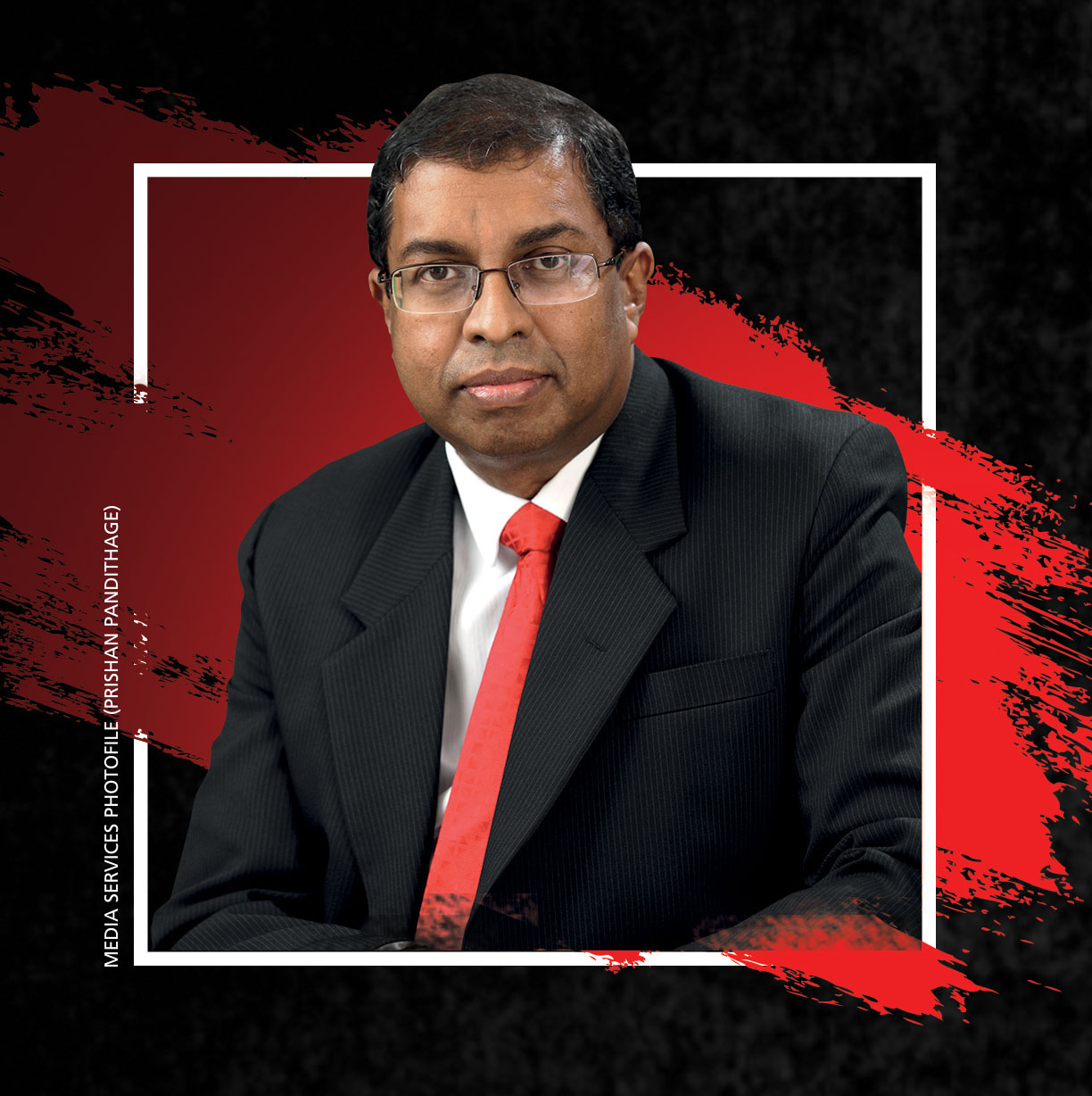 6 APRIL
6 APRIL
Saliya Pieris
NATION AT THE CROSSROADS
Why power must be exercised intelligently
The President of the Bar Association of Sri Lanka (BASL) Saliya Pieris, airing his views on the recent people’s protests, said: “Citizens have a right to express themselves; it is a right that must be respected and understood. Currently, many in Sri Lanka are demonstrating their anger and anguish by protesting; and on the part of the authorities, there has to be empathy and understanding of their suffering.”
“There should be respect for public opinion even if it is distasteful to authorities; the fundamental rights of citizens to peacefully demonstrate should be accepted. However, it is not right for protesters to harm property of the state or individuals – BASL has released a statement on this,” he elaborated.
Discussing the possibility of meeting the protester’s present demands, he said: “I think any solution has to be achieved through constitutional provisions. Our constitution sets out how the government is established, ministers are appointed and Sri Lanka is governed. It is important to adhere to basic rules and principles of the establishment, and work within this framework.”
Pieris added that “compromises will be needed – those in positions of authority need to understand the consequences of not changing when people want a difference; it is of paramount importance for those governing to respond to the demands of the population.”
“People’s supremacy is far reaching – the sovereignty of citizens is firmly established in Sri Lanka’s constitution. However, we must understand that power must be exercised in an intelligent manner, rationally and not rashly,” he articulated.
Speaking about the 20th and 19th amendments to the constitution, he remarked: “At the time the 19th amendment was enacted, BASL was supportive of it. Despite some weaknesses, it controlled the powers of the executive.”
“We pointed out the importance of maintaining independence of human rights and bribery commissions, and judicial appointments, with the 20th amendment to the constitution. BASL reiterated that in appointing persons to these offices, there must be a process where the president does not have absolute authority, his appointments are not arbitrary, and the constitutional council should review the president’s nomination,” he emphasised.
Pieris continued: “I think in any system of governance, too much power given to one position of the state could easily lead to abuse – there must be checks and balances. Clearly, the executive presidency wields too much authority, and it is imperative that any office is accountable to parliament.”
Airing his thoughts on the situation in Sri Lanka at the time, he felt that “we need to understand the rights of everyone who is protesting. The nation is at the crossroads and the path we choose will impact this country for generations to come. I criticise some sectors that have remained silent and haven’t been vocal enough. It is particularly important that we remain vigilant and exercise our rights.”
“The BASL issued a statement on the current economic crisis in January. We set out in detail our perceptions of issues facing the economy, and what ought to be done. I’m sorry to say that not many sectors have been vocal; and it is only now that some are expressing their views when they should have been proactive months ago,” he stated with disappointment.
Finally, referring to the magnanimous gesture on the part of the legal community to protect the protesters, Pieris mentioned: “It was spontaneous. When the legal community realised that some protesters had been arrested, members of the bar offered to help and visited arrestees at the police station to provide them any legal assistance required.”
“The bar is always committed to safeguarding the interests of citizens. The legal profession will always stand up for the rule of law, for the independence of the judiciary and to safeguard fundamental rights of people in this country,” Pieris assured.
– Compiled by Viloshini Dias
INSTABILITY REIGNS
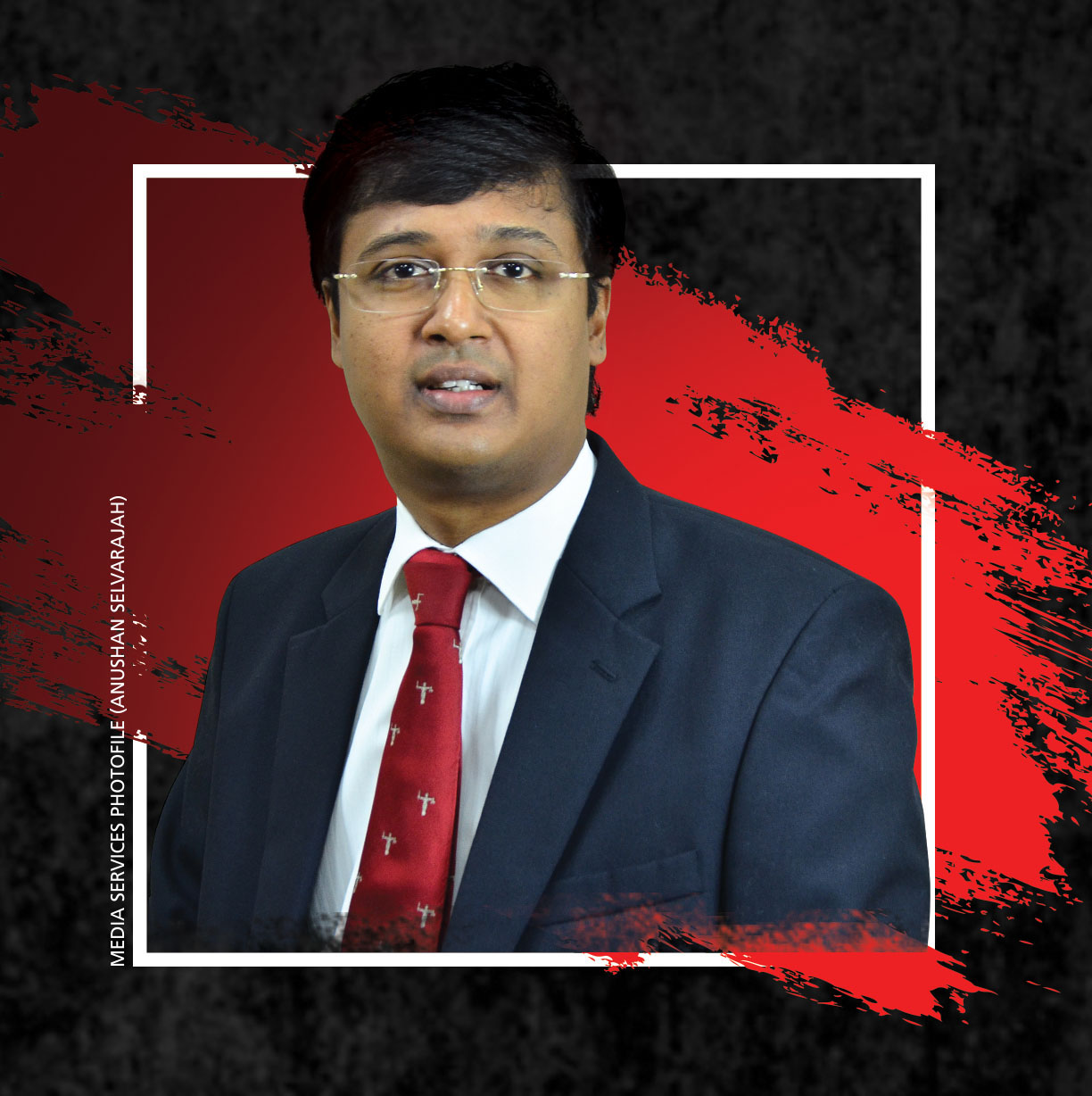 11 APRIL
11 APRIL
Rajeev Amarasuriya
A MATTER OF PRIORITIES
Woes of political and economic instability
A message circulating widely on social media recently claimed that military law prevents the armed forces from shooting at demonstrators carrying the national flag because it would tantamount to a war crime.
A former Secretary of the Bar Association of Sri Lanka (BASL), Rajeev Amarasuriya – speaking on whether the national flag provides additional protection to protesters – explained: “My understanding of the law is that one does not get extra protection by holding a national flag.”
“We must be mindful when relying on social media. Sometimes it can be someone’s misunderstanding; or it could be fake news that is intentionally introduced to mislead or misguide a group of people. Personally, if I’m unsure of the validity of information, I always take extra care to check whether it is true or false,” he elaborated.
Amarasuriya continued: “One must also appreciate that military personnel or police shooting at unarmed civilians engaged in a peaceful protest would be nothing less than murder. Further, the fundamental right of freedom of peaceful assembly is well entrenched in our constitution. Therefore, force cannot be used unless it is to curb a very violent situation – and protestors have a responsibility to ensure that there is no breach of peace and harmony.”
“Furthermore, those who do not want these protests to happen could very well incite violence to sabotage activities. Therefore, our democratic institutions must be strengthened. We need an independent police force unafraid to refuse the execution of unlawful orders requested. No one is above the law’ and even the attorney general and his department must be transparent – their work must be in the national and public interest,” he emphasised.
Commenting on the vicious cycle of political uncertainty leading to economic instability, Amarasuriya remarked: “We need to look at our immediate priorities. The BASL issued an economic statement on 14 January, which was widely circulated – every national newspaper and TV channel carried it, and we raised many concerns in that statement.”
“If the government or its various functionalities understood and appreciated even one line of our two page document, they would not have acted in the way they’ve done during the past three months. The state and its relevant officials ignored what everyone was saying with absolute arrogance. Further, our political leaders are often surrounded by ‘yes men’ to the extent they’re secluded from reality,” he opined.
He noted at the time that “anyway, before we look at long-term change, we need to get out of this grave economic crisis. In my view, that is the responsibility of those who have got us into this predicament. They should be held accountable and have a duty to bring this country back to at least what it was at the time they came into power in 2019.”
“We need a total transformation, of course. A new governor has been appointed to the central bank – a gentleman who could have taken this position much earlier. There have been mistakes made continuously. The credit of initiating this change must go to the people. Approaching the IMF and securing a good deal for Sri Lanka is the most sensible option now,” said Amarasuriya.
Then finally, speaking about the executive presidency, he stated: “Personally, I am convinced that abolishing the executive presidency would be a panacea for all our ills. However, ultimately it is a significant amendment to the constitution – one that would require approval of the people at a referendum and a special majority of parliament.”
“A referendum is also ultimately an election; and Sri Lanka cannot afford an election at this juncture. As mentioned earlier, we need to address the immediate economic issues and everything else can be done around it – having adequate supplies of fuel, food and medicines should be the priority of the government,” he said, in conclusion.
– Compiled by Viloshini Dias
REALITY CHECK
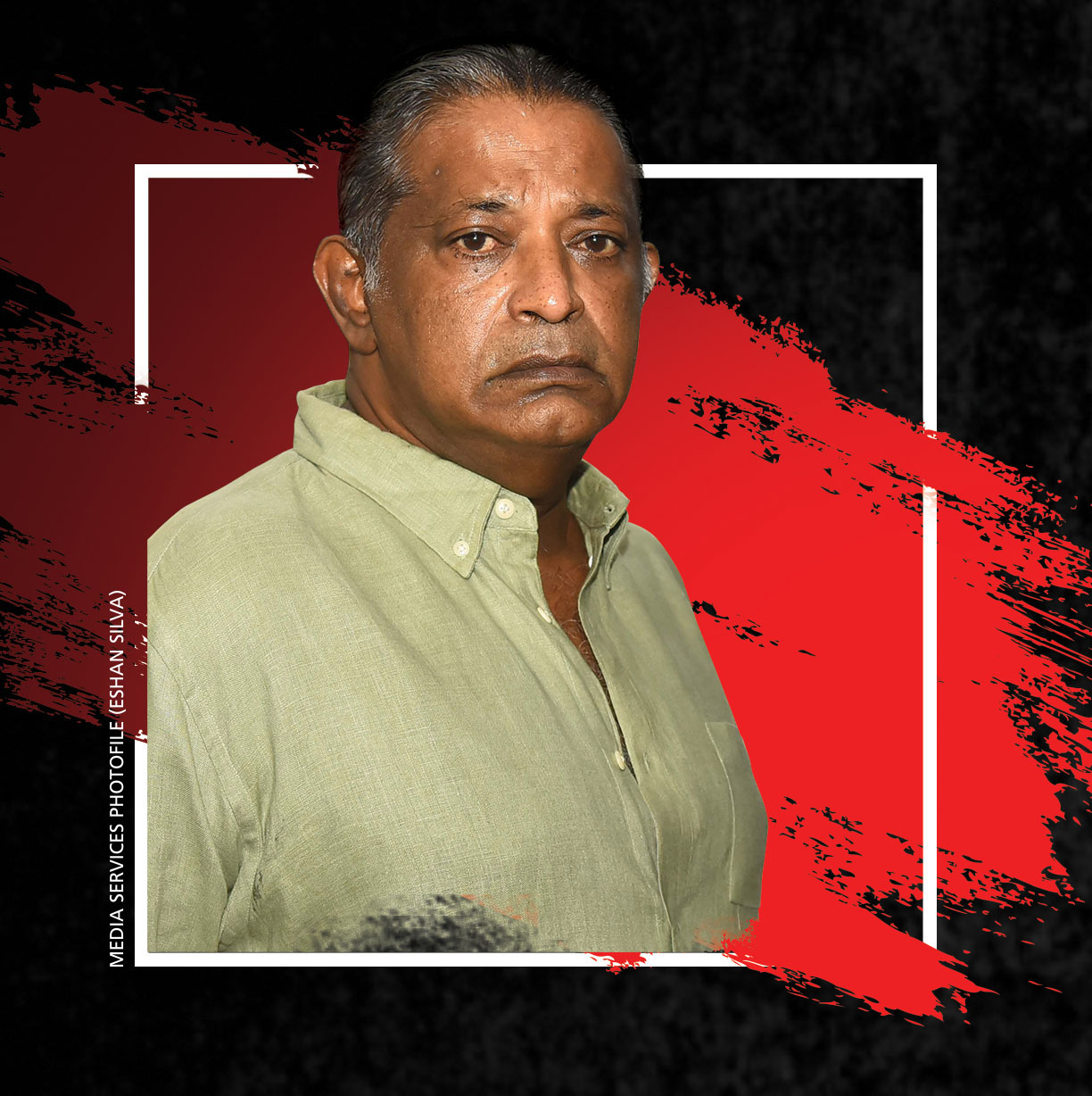 20 APRIL
20 APRIL
Dr. Paikiasothy Saravanamuttu
A LIBERAL DEMOCRACY
A battleground of realism versus optimism
“I am an eternal optimist; and as a consequence, I do believe we can move towards a liberal democratic Sri Lanka,” quipped Dr. Paikiasothy Saravanamuttu – Founder and Executive Director of Centre for Policy Alternatives (CPA) – when asked whether he thinks the country can ever realise this vision, given the momentum the peaceful demonstrations have gained in recent weeks.
He added: “I also think the GotaGoGama protests in particular have added a new dimension to this revolution and introduced a new political culture. The protestors are determined to achieve their objectives peacefully with an emphasis on the basic tenets of liberal democracy – accountability and anticorruption – effectively ensuring that the kind of plunder and looting we have seen will not proceed into the future.”
Saravanamuttu then said that “a proper functioning liberal democracy will of course be one in which there will be space, acknowledgment, appreciation, enjoyment and celebration of the diversity of this country – where all the people of Sri Lanka will feel that they have a place and a stake, both in opinion and decision making.”
“Equality is tremendously important because accountability in the north and east appeared to be in terms of war crimes or crimes against humanity – and in the south, it was largely about corruption when we raised these issues during the election in 2015. These concepts need to be merged and used as the spearhead for a serious and committed movement towards creating a functional, liberal democracy,” he elaborated.
On the subject of good governance and conflict transformation in the country, he mentioned: “One rule of law for all is absolutely important. The Israeli philosopher Avishai Margalit said that institutions should not humiliate people and people should not humiliate each other. These are two broad general guidelines and the basic founding principles when it comes to creating a society that is based on good governance.”
“We absolutely need to get rid of institutions like the executive presidency where all power is concentrated in one individual. Further, strong laws need to be in place to ensure that we have independent state institutions that provide checks and balances on the exercise of executive authority – an impartial judiciary sans political interference is a must. We also need to bring in robust measures that provide for anticorruption on all fronts,” he urged.
Saravanamuttu stated that “more women and youth in parliament is also a requirement. We need to come up with a quota system that will have what I call a ‘sunset clause’ – i.e. it will not be there forever – until that proportion of the population is represented in national politics and elected office.”
Moving on to discuss the forex shortage and economic crisis, Saravanamuttu maintained that “rather than opting for an IMF bailout at the outset, the government resorted to protracted power cuts, import restrictions, and bilateral loans and credit lines, from China and India. Sri Lanka only recently started formal negotiations seeking financial support from the IMF, reversing the government’s earlier stance.”
“The IMF will want to make sure there is political stability in the country, along with debt servicing sustainability. It will undoubtedly expect taxes to be raised, public spending to be curbed and restructuring of loss making state owned enterprises. Therefore, I think things will get worse before they can get better; but in order for us to put ourselves on a stable footing, we have to grin and bear the losses and pain,” he elaborated.
He summed up as follows: “Whilst there are a few bitter pills that have to be swallowed, we have to make sure that in that process the poorest sections of the population are not disproportionately affected. They are already going through considerable pain and suffering.”
“Therefore, it is imperative to formulate a system for social protection so that the underprivileged can tide over the current situation,” Saravanamuttu added.
– Compiled by Viloshini Dias
REAL DEMOCRACY
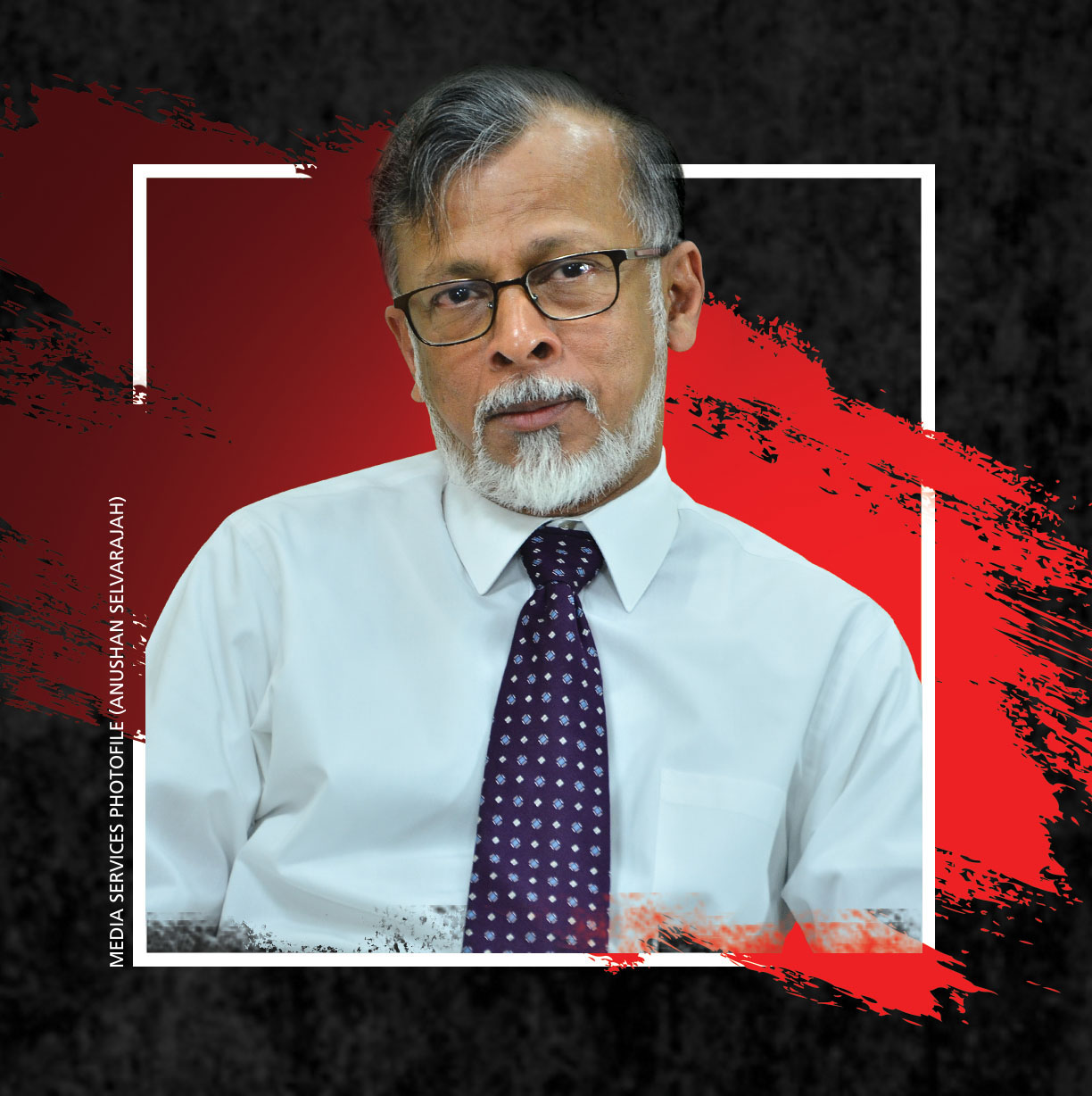 27 APRIL
27 APRIL
Dr. Arittha Wikramanayake
A BOUQUET FOR BASL
Upholding democracy in challenging times
The Precedent Partner of Heritage Partners Dr. Arittha Wikramanayake described the standoff between citizens and the government succinctly when he said that “first and foremost, we must understand that the situation is extremely complicated and people are utterly fed up.”
He added: “The demand that ‘all Rajapaksas and their cohorts must go’ is very valid given the level of incompetence, lack of caring and perceived corruption that completely surround them. They have clearly lost all credibility.”
“If you go for these protests and talk to the vociferous young people, their general disgust about all politicians is very evident; and the common rhetoric is that all 225 members of parliament must go – sadly, I tend to agree,” he explained.
Wikramanayake remarked that “the second thing we have got to understand is Sri Lanka’s financial crisis. I think that is no less important than changing the government and getting these rogues to go. A lot of people I talk to seem to think that the IMF will suddenly appear from nowhere, wave a magic wand and we’ll be back in paradise once again. It will not happen,” he opined.
“The first question to ask is whether we are in a position to get a good IMF programme in place. Nothing can be done overnight, and there will need to be many rounds of discussions and negotiations. And even if the IMF plan is worked out, implementation of it will be a huge challenge,” he cautioned.
And Wikramanayake added: “Inevitably it will be a long and painful process, leading to rising costs involving rationalising and downsizing many state owned enterprises.”
Referring to GotaGoGama, he noted: “That gathering is peaceful, and it has united people of all races and religions. People need to be able to voice their ideas, air grievances and let their pressure off. You cannot stop people from demonstrating and exercising their freedom of expression.”
When asked about the judiciary, Wikramanayake explained that “it is there to administer justice – to make sure laws are implemented and enforced – and provide a forum for people to resolve their disputes. With regard to law enforcement, by and large the judiciary has been successful except for delays and inefficiencies that haven’t been addressed for a long time.”
“There are some courts in the country that hear cases only once a year. In the event of a land dispute that comes up once a year, it could even take 20 years to get a resolution. People cannot afford to wait that long. Such inefficiencies would lead to excessive costs to the economy. With improvements in technology, the judiciary could certainly improve its processes to increase productivity and efficiency,” he maintained.
Moving on to discuss the efforts of the legal fraternity in supporting the people’s movement, he elaborated: “I can tell you with all honesty that during most of my career, I haven’t been proud to be called an attorney. I know the way people perceive lawyers – and sometimes when I mention my profession, it has been more of an apology than anything else. However, for the first time in ages, I’ve been proud to say that I am a lawyer.”
“I applaud the Bar Association of Sri Lanka (BASL) for the courage, wisdom and stand it has taken during this crisis. A lot of credit should go to the president of the BASL and his committee. They have been absolutely amazing. Saliya Pieris is not an extraordinary man; he is just like you and me – and he has risen to the challenge and shown everybody what he’s capable of achieving,” he enthused.
He added: “People rarely get opportunities like this in their careers – and even if they do, they’re not big enough to rise to the occasion and the challenges presented to them. The BASL has been courageous enough to demonstrate that you can stand up for change with dignity and inspire people.
“I applaud them; and they made me feel good to be a lawyer again – for that I’m very thankful,” Wikramanayake said, with pride and gratitude.
– Compiled by Viloshini Dias
STOP CORRUPTION
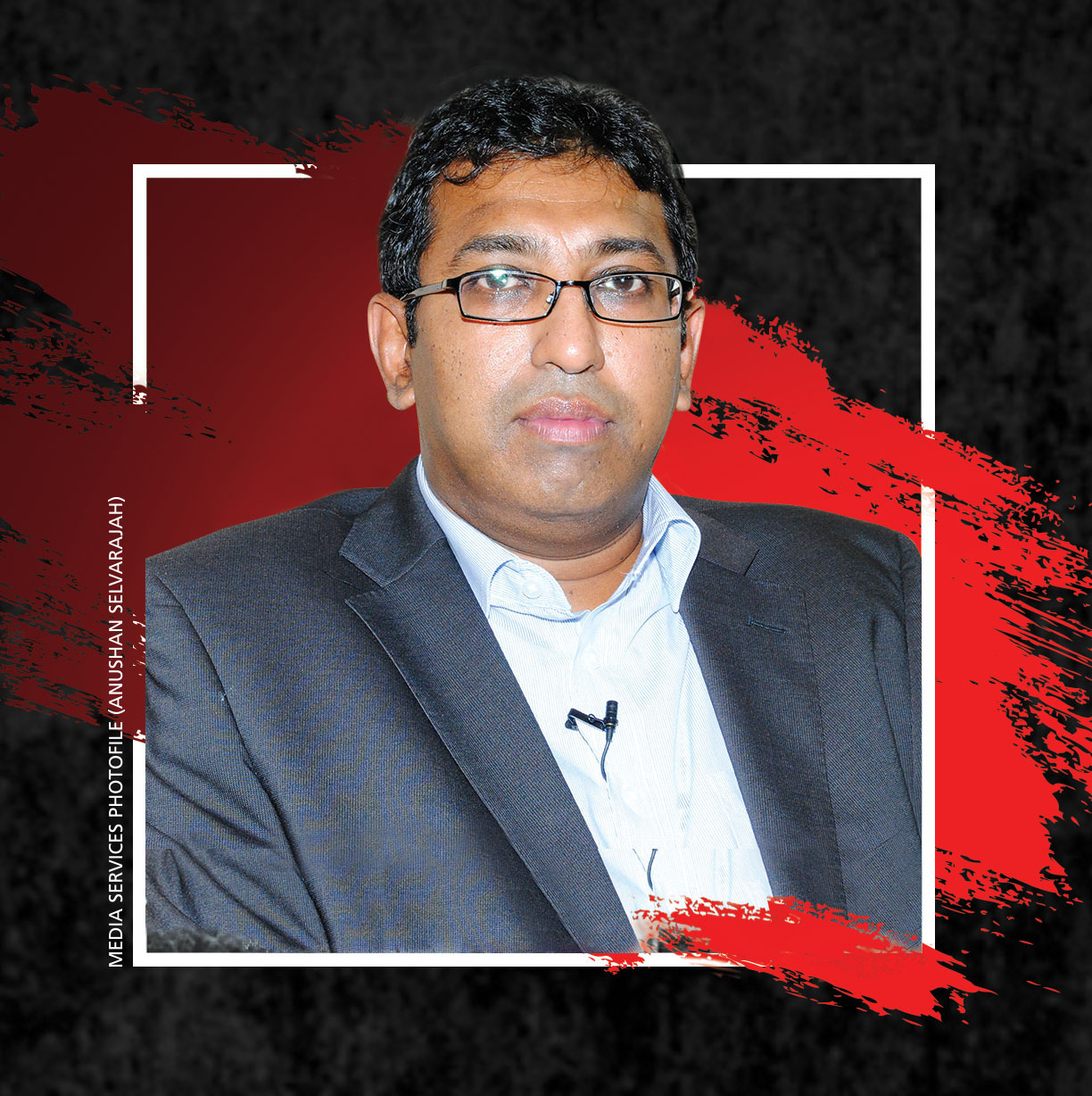 4 MAY
4 MAY
Dr. Harsha De Silva
SAY ‘NO’ TO CORRUPTION
Food for thought for all – society included
Five years ago in France, Emmanuel Macron broke ranks with the established parties and won the presidential election as an independent candidate. Responding to LMD’s question as to why he and others aren’t taking a cue from France, Dr. Harsha De Silva stated: “The existing political landscape and party system in Sri Lanka is still quite traditional and has built-in complexities.”
The Colombo District MP added: “Therefore, I do not think it is possible for an independent operator to go outside a political party and replicate what has happened in certain other countries.”
“I think the best way to campaign and win at a democratic election in Sri Lanka is from within a political party structure. However, in certain social segments – particularly in the city – there is a change in mindsets. Perhaps we are moving towards a more utopian state,” he deliberated.
Responding to a statement made by a leading lawyer on the preceding edition of LMDtv that all 225 MPs must go, De Silva said: “I think it is unfair to paint all 225 with the same brush because there are good parliamentarians in every party – some have completely abused their power, not declared their assets and liabilities, employed relatives in their offices and engaged in criminal activity… yet, this does not mean that everybody is corrupt.”
He spoke candidly: “Corruption is a cancer that needs to be completely eliminated – it exists from top to bottom and in every field in this country – whether it is the garbage collector who asks for an extra Rs. 200 to come every week to clear the rubbish, to the very top where colossal amounts are earned as commissions by ministers from infrastructure projects.”
“In between these levels, all kinds of people engage in many corrupt activities. I once challenged the audience at an economic forum and asked those who have never paid a bribe to the local council to stand up – only about 50 percent stood up,” he revealed.
And as he emphasised, “it is important for us to look internally and question ourselves whether we participate in corrupt activities. You cannot clap without two hands but generally, only the taker is highlighted – what about the giver?”
“How many people pay their taxes? How many lawyers and doctors are paid in cash? How many tuition teachers who teach kids about being good citizens conceal their earnings from the system?” he asked.
De Silva said emotively that “this is a societal problem. As a society, we need to be able to deal with these issues – we have to be genuine and honest about changing our mindsets, to bring about a real and lasting transformation.”
Moving on to the immediate economic crisis where bare essentials have been in short supply, the power cuts continue, and poorer segments of society are living a hand to mouth existence, he commented: “I saw this coming since mid 2020. I said it in so many ways; I spoke in English, in Sinhala, inside and outside parliament – I mentioned facts during TV debates and in newspaper interviews but no one listened.”
“I may have been the first in parliament to urge discussions with the IMF. There is a pathway out of this chaos,” he insisted, adding: “There are five things that need to happen immediately – arranging bridging finance, ensuring the banking system is stable, stabilising the macro economy, making sure there is a social safety net for the poor so they are cushioned in some way and finally, restructuring our debt – leading to massive economic reforms.”
Finally, speaking about asset declarations and independent audits becoming mandatory for MPs, De Silva explained: “The law says not just MPs but senior officials involved in public contracts should declare their assets. However, the current law does not force the person with access to such information to release it to the general public. Therefore, unless you voluntarily disclose your assets, they will not be publicly available.”
– Compiled by Viloshini Dias
VOICE OF BIZ+
GEOFFREY ALAGARATNAM
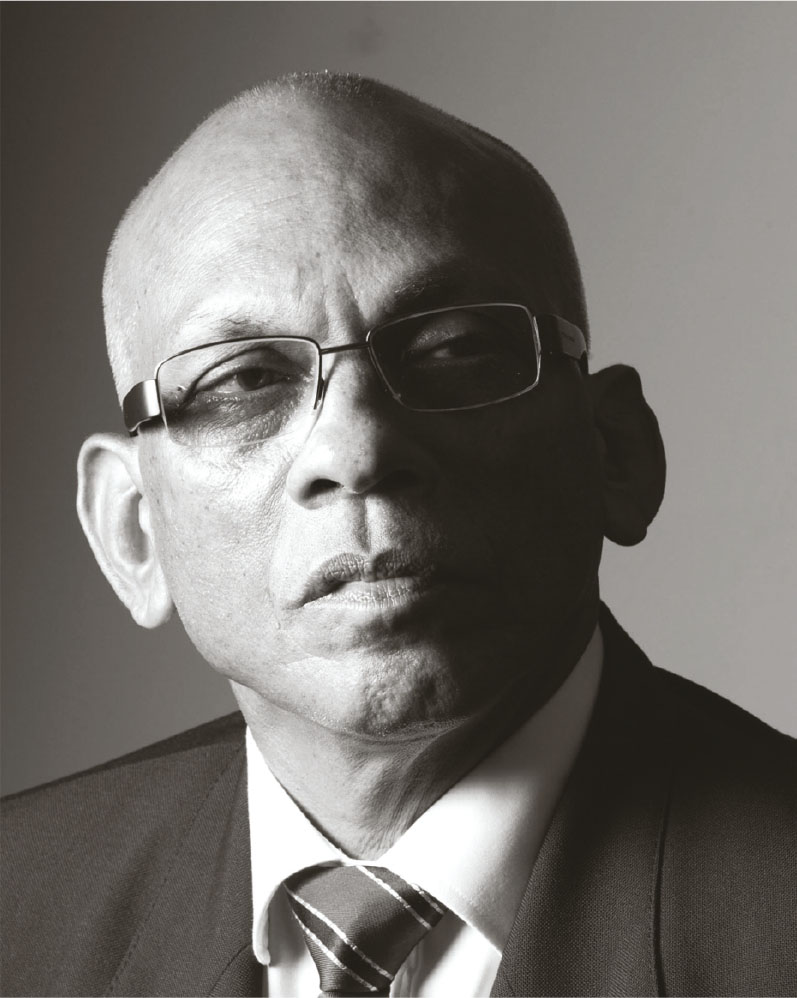 Sovereignty
Sovereignty
Sovereignty is in the people. The elected representatives – be they the executive, parliamentarians or the judiciary – are only trustees holding office in trust for the people and the country. Though we do not have the right to recall any of them for nonperformance, they have no moral or ethical right to continue in office if they do not deliver.
It is up to the people to pressure them nonviolently and by lawful means to vacate office, even when independent of corruption or abuse of office, they have proved disastrous on several serious economic and law and order counts, bringing the country to its knees.
Unfortunately, one cannot expect them to voluntarily and honorably go, as each individual has much to lose personally – especially in the way of financial interests.
Difficult though it may seem, the people should unitedly and collectively reclaim their sovereignty lawfully so that once and for all, a united Sri Lanka may be established – one which makes no differentiation on the basis of race, religion, language, caste or creed.
No longer must we fall prey to these differentiations, which have been cunningly used to divide us by successive governments. That’s the only way to achieve vistas of splendour and prosperity for this beautiful country.
SHIROMAL COORAY
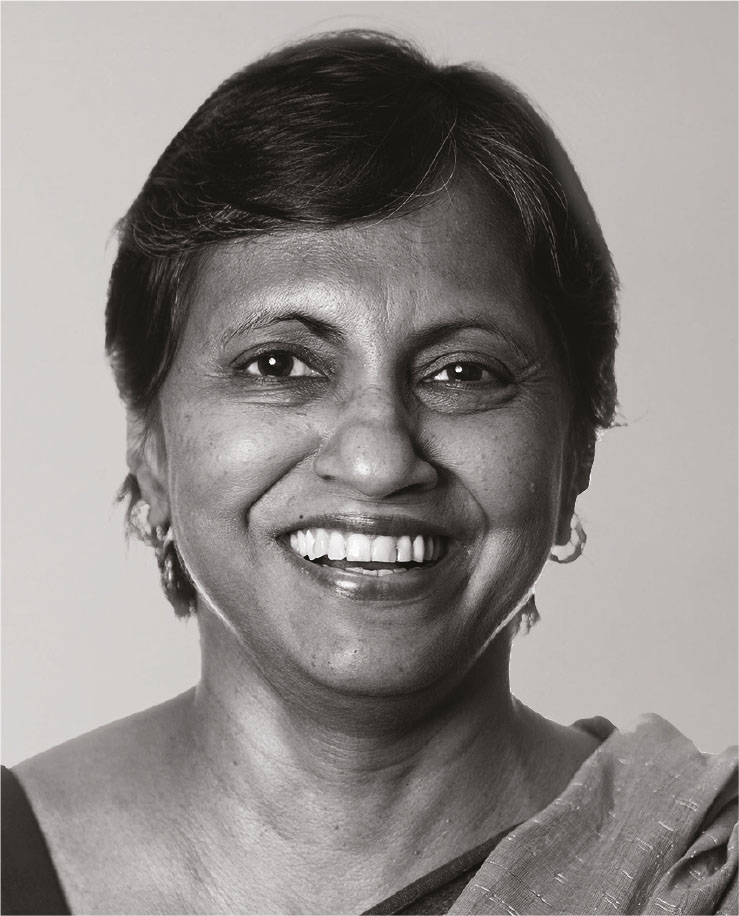 TRANSPARENCY
TRANSPARENCY
Inculcating a culture of accountability, transparency and financial discipline is extremely important with immediate effect. Whether at home, school, work or society in general, you must be held accountable for your actions. If you’re lauded for your victories, you must also be punished for your failures.
We should not be allowed to say ‘we made a mistake’ and carry on. Leaders must lead by example and they’ll be respected when they accept responsibility and vacate their positions when they fail.
Transparency is equally important. The public must be treated with respect and the truth must be told. Then no one will find fault or criticise. Accurate information about the financial situation of the country, the resources available and the preventive measures citizens should take to avert further crises should be provided regularly.
Financial discipline should be instilled from top to bottom – by streamlining expenses, eliminating waste, working within budgets and explaining variances; and this should be introduced immediately as we have absolutely no time to waste.
RENTON DE ALWIS
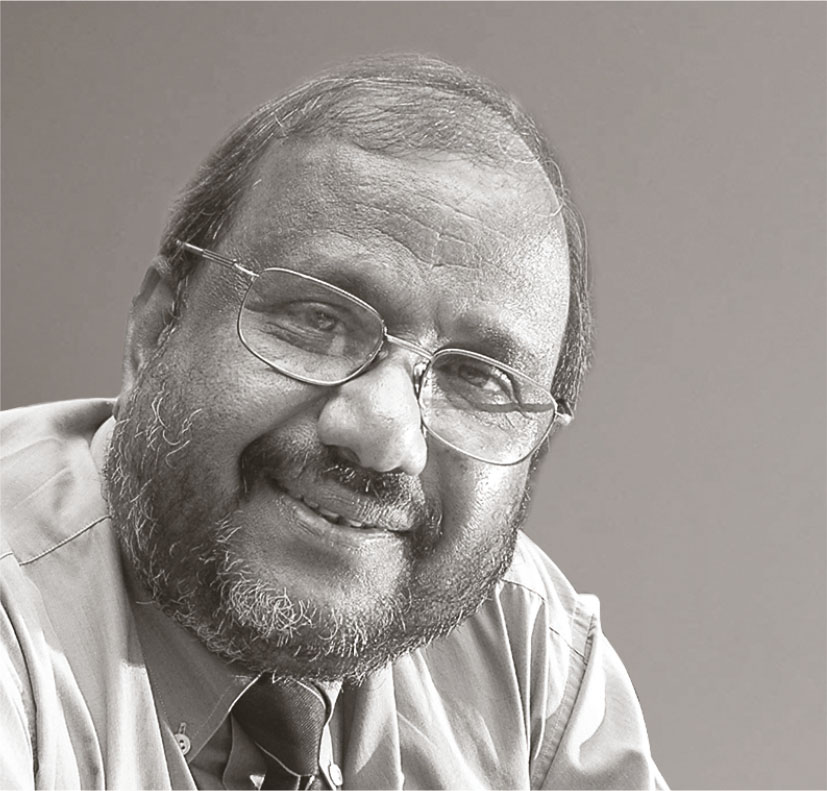 JUSTICE
JUSTICE
At the age of 75, I’m elated to see our youth rise against corruption, mismanagement and wrongdoing; united as one nation, as Sri Lankans.
Since independence, we have embraced systems that by and large facilitated wealth creation and with time, our traditional values of thriftiness, frugality and austerity were forgotten. No one can deny that the systems encouraged consumerism, overindulgence and lopsided competition – and they have led us to what we are today.
We turned a blind eye and a deaf ear, and remained mute as political power coalesced into the device of an executive presidency. Some of us chose not to see – or care – as this suited us best. Is it that our moral conscience had eroded so low that we have had to pay for it over 30 years?
The lesson for us to learn in all of this is that we must all take a hard look in the mirror. It’s time to learn a lesson from history – we need to revert to more austere lifestyles; and we need to be honest and fair. We must join hands with this generation, and add our voice to theirs in calling for justice – justice for all Sri Lankans.
NIHAL FONSEKA
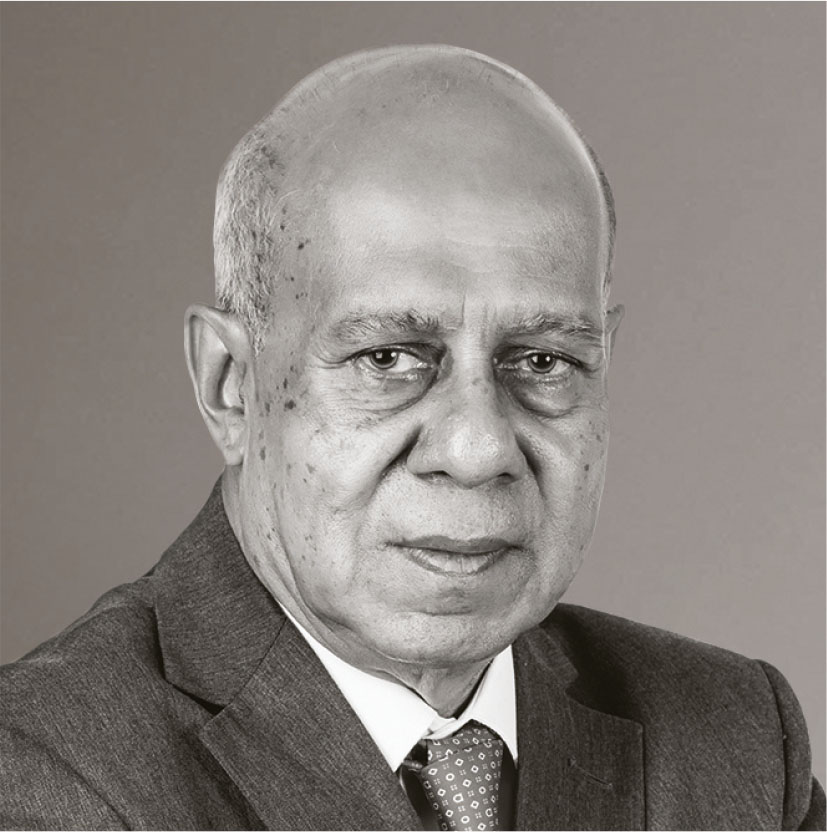 ACCOUNTABILITY
ACCOUNTABILITY
It is common knowledge that there’s an almost total lack of accountability for policy failures, and for disregarding the rule of law on the part of our political leaders and senior officials. This is a main contributory reason for the country to slide progressively to this low depth over the last few decades.
Although segments of the private sector also suffer from this malaise, that doesn’t affect the whole nation. I think this feeling of impunity is promoted by our constitution itself!
We have Article 28, which specifically says there are no remedies if the state – meaning the executive, legislature and judiciary, being its three arms – do not deliver on the duties and responsibilities that are very lucidly and grandiosely set out in Article 26, which makes this part of the constitution meaningless.
In fact, an impartial assessment will lead us to conclude that successive governments have quite often worked against delivering on those responsibilities. We pass laws and take policy actions without anybody publicly and transparently quantifying the expected financial or qualitative benefits.
Outcomes are rarely measured or assessed objectively, and nobody is held accountable when the objectives are not met. At that stage, there is a lot of pandering to the egos of policy makers, preventing course corrections.
Long gone are the days when ministers resign when policies fail. These days, they keep finding excuses and it is always someone else’s fault.
HARPO GOONERATNE
MORAL COMPASS
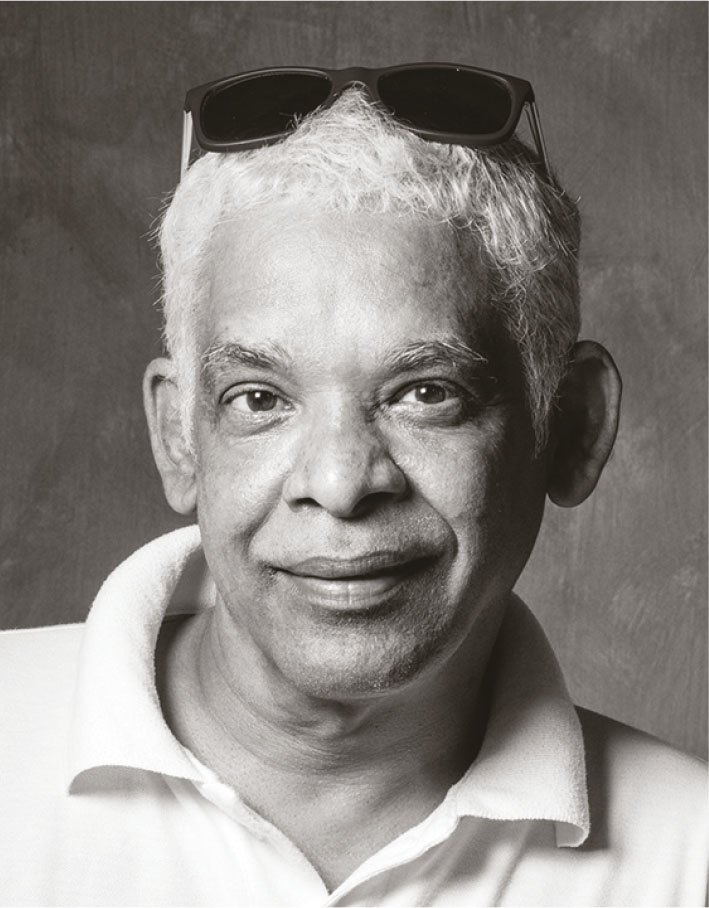 People power can be most effective with a defined strategy and clear message, in order to move governments and other authorities for real change. Consistency and persistency are the tactics that will ensure the message is taken seriously and not confused with anti-government slogans.
People power can be most effective with a defined strategy and clear message, in order to move governments and other authorities for real change. Consistency and persistency are the tactics that will ensure the message is taken seriously and not confused with anti-government slogans.
A total lack of accountability has been a reason for the downfall of the economy. Accountability is a vital aspect of good governance; it ensures that public officials act in the interests of the people and are answerable for any failure to do so.
In future, we need clear communication and consistent policies, so that trust may be rebuilt with government and its institutions.
We have gone so far away from zero tolerance of corruption – corruption is now endemic in all ways of doing business. We will need to work from the ground up to rebuild a culture of discipline, integrity and honesty. We need a calibration of our ethical and moral compass.
We’re a resilient nation of people, and this is reflected in the people power demonstrations against irresponsible governance and corruption. A new era should bring changes to government and the legal system.
The educated young who are suitably qualified and deserving must be given the opportunity to take on positions of leadership.
PROF. SAVITRI GOONESEKERE
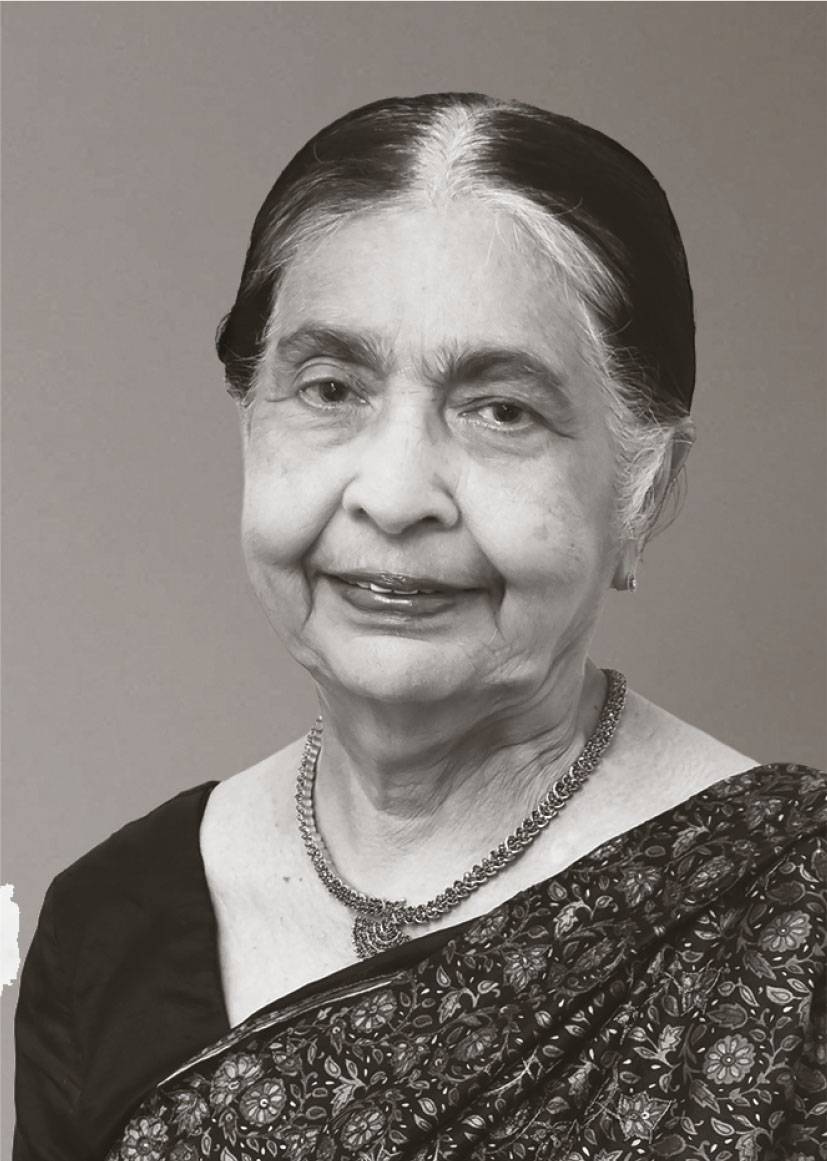 PEOPLE POWER
PEOPLE POWER
The people power that we witness in vibrant, articulate and peaceful street protests – by citizens who are united despite differences of age, class, race and religion – has conveyed an important message. The protests demonstrate an understanding, after many decades, that we elect and place persons in ‘public office’ and not ‘in power.’
They hold office because the power of government under Article 3 of our constitution is in the sovereign people, and we have permitted them to exercise the duties and responsibilities of office. A new era must dawn where all branches of government and public officials understand this critical aspect of governance when elected or appointed to hold office in a parliamentary democracy.
An executive president, cabinet and members of parliament in government – i.e. key institutions of governance – must thus recognise and accept failure to fulfill the responsibilities of office placed upon them by the people.
They are accountable to the citizens for abuse of office, corruption and gross financial mismanagement, which makes a nation with a wealth of physical and human resources almost a failed (and clearly a bankrupt) state.
Saying sorry is simply not acceptable.
VISH GOVINDASAMY
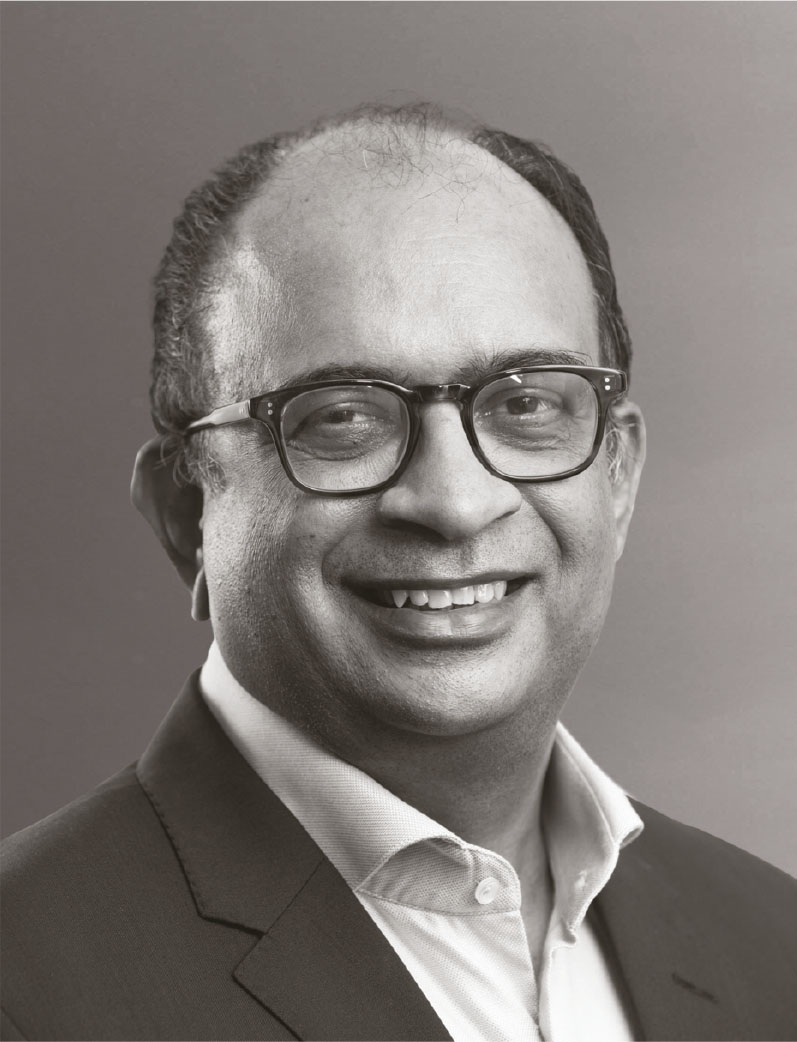 UNITY
UNITY
Corruption has a phenomenal impact on price, which is then passed on to society. It then undermines the very wellbeing of every citizen and has a corrosive effect on the economy of a nation. This is the ultimate price a nation will pay for undermining a merit based system.
The use of influence peddling and pandering is the root cause of corruption. When the very best for the job is unfairly not selected and panderers who will toe the line are appointed, we are left facing the consequences. Where ineffective, opaque and dishonest decisions are made, these have a damaging and detrimental effect on society.
Today, we hear the voices of the youth of our nation – generations Y and Z – raised with the courage of conviction and a strong sense of character, calling for systemic change based on meritocracy and honesty. They are calling out the henchmen culture, against the barely educated and inept misfits who have been appointed to top positions and only serving personal agendas.
If leaders are chosen through a system of meritocracy, every other walk of life will follow suit; and the very best people, the most qualified and those with proven track records will naturally rise as leaders in all spheres.
The fervent hope is that such leaders will not be tied to any political ideology or agenda but will be pragmatic and altruistic, choosing honest governance and policies that will benefit the country. The demands of our young people must be heard.
Indeed, the time has come for us of the older generation to heed their call and work for a better Sri Lanka.
DESHABANDU KARU JAYASURIYA
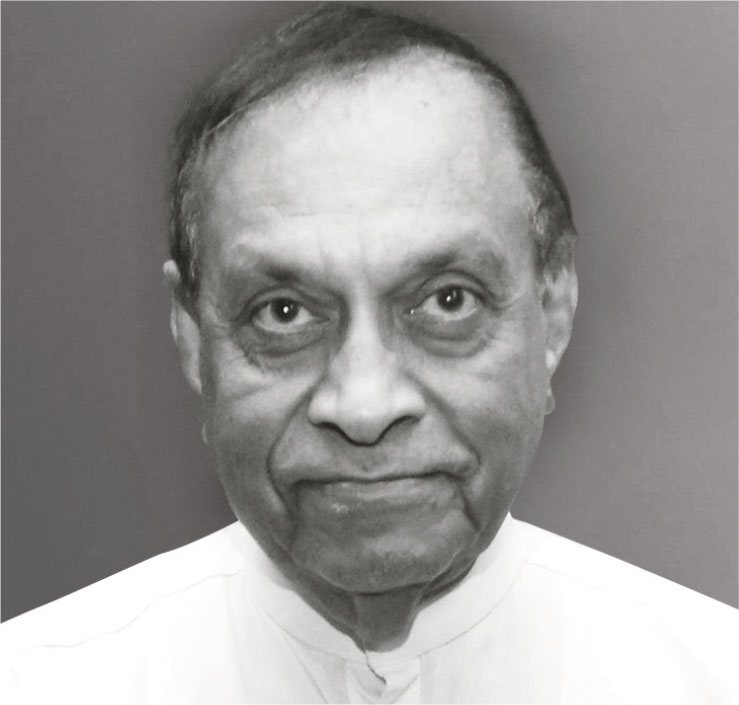 GOVERNANCE
GOVERNANCE
Sri Lanka must found itself on human capital, social infrastructure and participatory institutions. Sri Lanka doesn’t deserve to go through this misery. Although current events manifest as an economic crisis, it is a crisis of governance.
Its roots are in irresponsible and bad decision making. Lack of transparency in government decision making processes weakens the capacity of citizens to hold officials accountable for their actions. This has created a breeding ground for many of the root causes of the present crisis – including cronyism, debt financed across the board subsidies favouring the rich and powerful, and heavy taxation of the poor (80% of revenue from indirect taxes) resulting in chronically high inflation.
State owned enterprises (SOEs) and foreign debt funded infrastructure development projects have been run by friends and relatives of the political elite at great cost to the economy. The outcome of all these has been persistently high budget deficits, currency depreciation and inflation.
Sri Lanka must come out of this crisis as a stronger economy and democracy. So how can we do it?
I reiterate that Sri Lanka must found itself on human capital, social infrastructure, and participatory institutions for growth and development.
From the local level onwards, participatory systems must be empowered so that the voice of the people, especially the youths, is heard – and so that they may participate in decisions that affect them. Such a process must start first at the top, by repealing the draconian 20th Amendment to the Constitution that is at the very core of the present crisis.
Until we solve the crisis of governance, no economic straightjacketing will solve our issues. However, I remain hopeful that Sri Lanka can adopt more transparent and inclusive governance structures that prioritise people, and become a thriving nation.
ALYNA HAJI OMAR
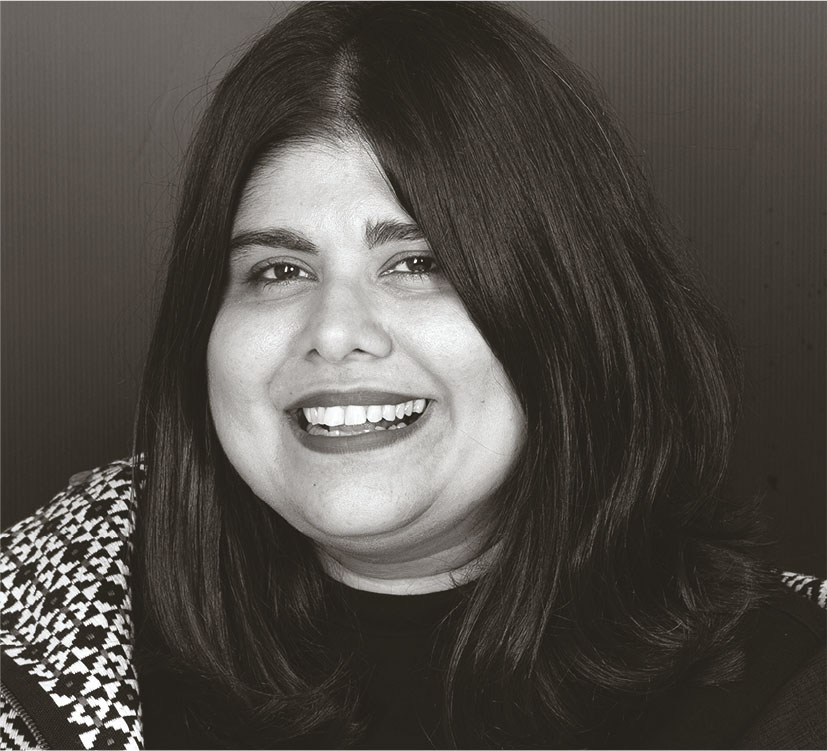 EQUALITY
EQUALITY
“Behind every issue there is a value.” I read this recently and it continues to illuminate this great Sri Lankan awakening of 2022. The reality is that this unprecedented, inspirational people power movement will eventually fizzle out unless it can change underlying social values.
The trigger issues of power cuts, fuel shortages and long queues represent the conflicts around which clashes of values are playing out. If we think back to Mirihana, public frustration boils over when it becomes increasingly clear that there is one rule for us (the public) and a different rule for them – the president and his family.
So the first time we feel the tangible impact of our collective outrage is in that moment when electricity is cut for the first time on Pangiriwatta Lane to pacify angry protestors. The cheers are deafening as they unite people across the island in that moment, our resolve only strengthening in the face of social media bans and curfews over the next 48 hours.
This fateful sequence of events mainstream what is a pivotal cultural shift; an economic crisis precipitates a political crisis that gives birth to a social revolution. By the time GotaGoGama was established in the following days, the struggle found its moral clarity – equality: one Sri Lanka, one people, one law, one purpose.
If leaders and civil society can leverage this momentum against corruption, and fuel the values of shared prosperity through equality, this people power movement will deliver real, sustainable change. Our ‘අරගලය’ is an innately decentralised movement that has successfully cut across society to find common threads to build consensus on.
No one hero drives it. Policy and purpose, over personality and charisma, bodes so well for what I am hoping is the movement that delivers the system change we so desperately need to fulfil our tremendous and often elusive potential.
YASODHARA PATHANJALI
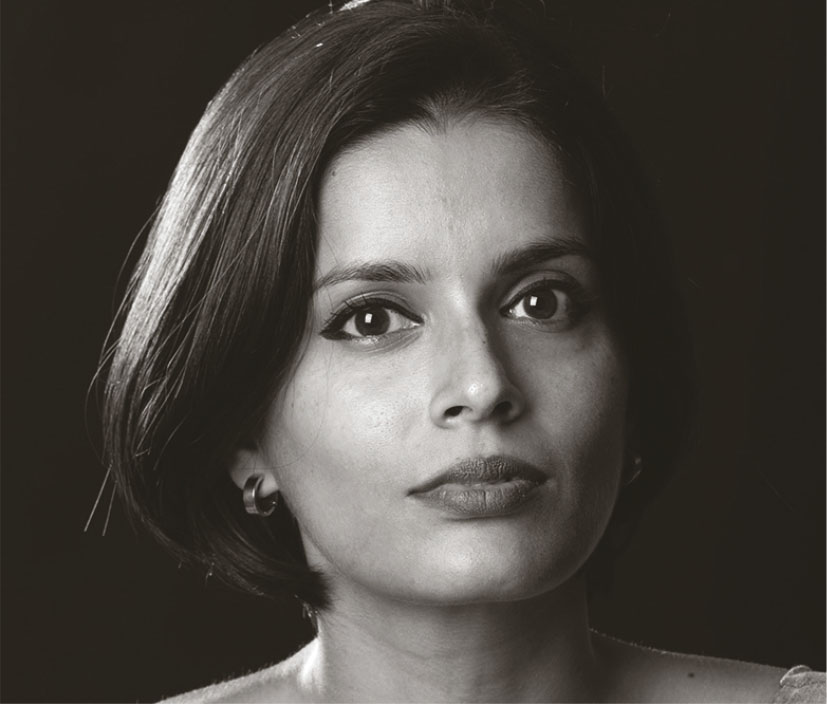 REFLECTION
REFLECTION
In any situation – be it social, environmental, economic or political – it is people who have power. We have many structures in place to make us feel otherwise; but the reality is that it’s the people who make up every single institution, social construct and system.
So it is our duty to exercise that responsibility in every walk of life, in every moment that we encounter it. Just as much as it is our apathy and irresponsibility that got us into this mess, it is our strength that will get us out of it.
In every institution – from family, to business and to government – we cannot thrive without accountability, transparency and discipline. It is not that these basic concepts are important going forward; they have always been the key requirements for a just, fair and equal society.
And again, it is because people have benefited for so long from corrupting these principles that we have a system that is rotten to the core.
If people are still going to pay a policeman for the convenience of not being fined and if parents will still pay a so-called ‘donation’ to admit their children to school, then that right is corruption.
We need to understand that paying garbage collectors those extra few bucks to take our trash away is corruption. And if we’re corrupt because it is easier for us, because we can’t be bothered to follow due process in our day-to-day lives, then we don’t have the right to demand it from our politicians.
This is the time to take a very hard look at ourselves; the time to reflect and understand all the tiny steps that have brought us here.
Just like Desmond Tutu’s reconciliation programmes in South Africa, the only way to heal and move forward is to understand how we got here… and forgive. We didn’t get here because it was arbitrarily imposed on us by a third party.
SURESH SHAH
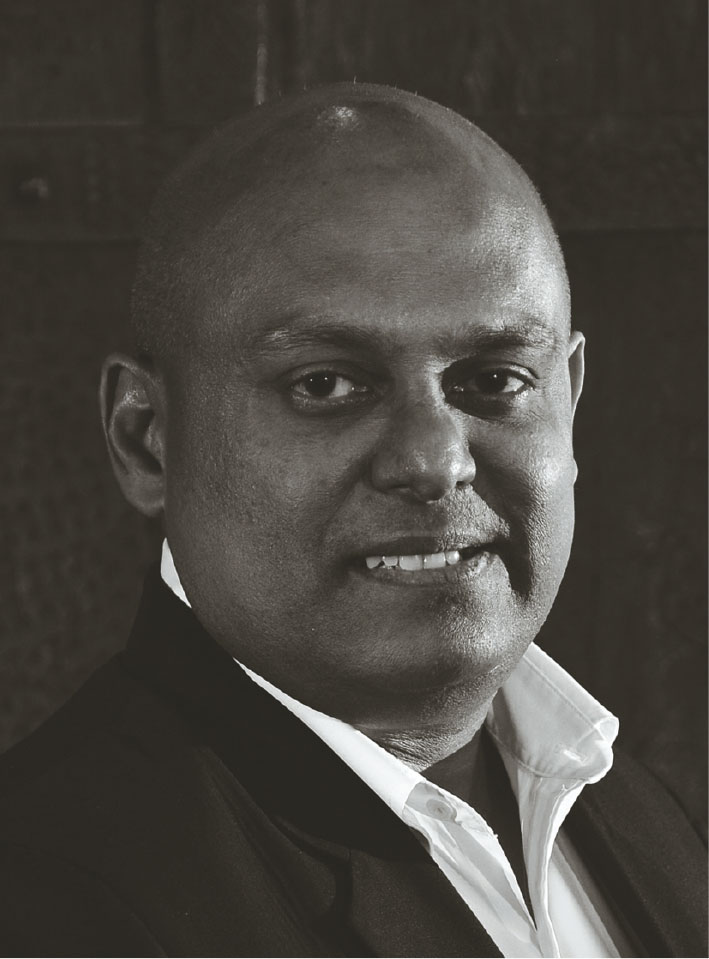 VALUES
VALUES
My aspirations for Sri Lanka in a new era are that it will be a country free of poverty, a people bound by a single Sri Lankan identity – but who remain proud of their diverse culture and heritage – and a nation steeped in liberal and democratic values.
If we are to succeed in this endeavour, our education system must focus on human values as much as it does on the sciences, we must learn to celebrate rather than fear our diversity, and let people live the life they wish to and not force them to conform to the ideas of those who lead.
As for prosperity, let’s create sustainable jobs that feed overseas markets as much as they do the local sector.
Let’s bind all this together with a constitutional and legal framework that keeps our political leadership on the straight and narrow whilst treating all citizens equally.
KEITH WIJESURIYA
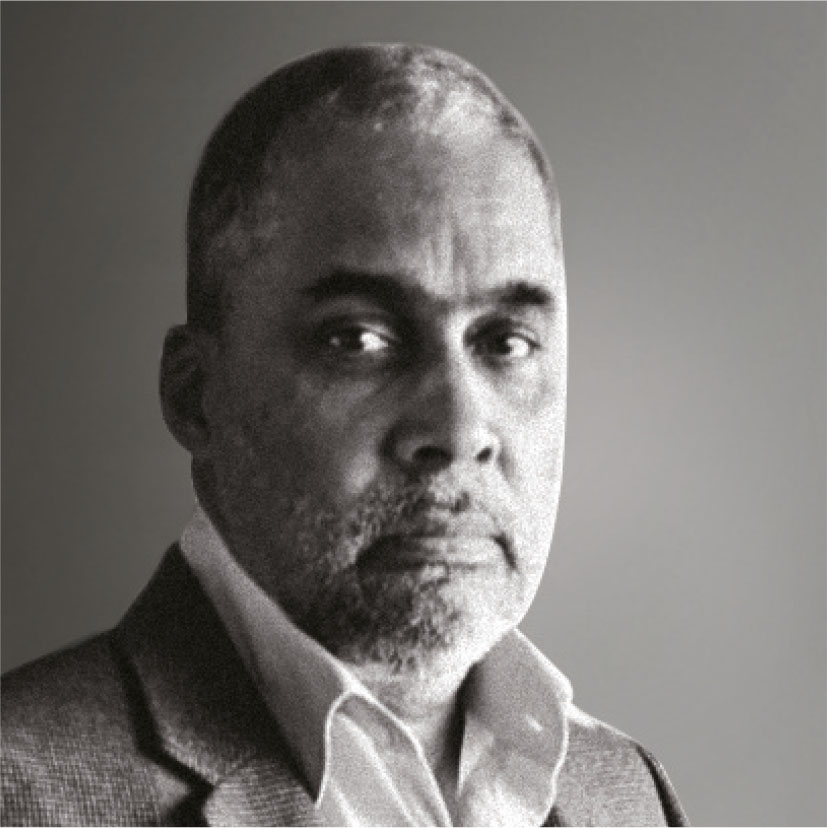 REAL CHANGE
REAL CHANGE
People power is true democracy. The very word ‘democracy’ comes from the Greek word demos, which means ‘the people.’ Sadly, conventional wisdom has it that whoever controls the military, the police and the media holds the reins.
The truth is that we, the people, have it in our hands to push for proper governance and real change.
People power is not limited to street protests. A fantastic example of people power is the legal collective coming together to make sure that people’s rights are protected. People power is when the masses come together to create a vibrant, moving force that creates a difference. A shramadhana is a great example of people power effecting real change.
We, the people, elect our representatives at various levels and capacities – be it schools, clubs, village councils or even the highest office of the land. Such elected officials are placed in those positions to deliver on their duties and responsibilities.
They are not appointed to exalted positions for their personal glory. They cannot claim that position of leadership merely by being the biggest or strongest; but instead, by earning the blessings of the people they represent. When those blessings change to curses, it is a sure and sad indication that their actions are no longer representative.
As Lord Acton famously said: “Absolute power corrupts absolutely.” Which is why in any thriving democracy, there must be checks and balances.
When there are too many ‘cheques and imbalances’ in play, a gentle reminder of who really holds power is needed to rectify the situation. This is amply demonstrated by the peaceful people’s protests. The country’s leadership would do well to heed the voice of the people.
The people have spoken. A response is required.
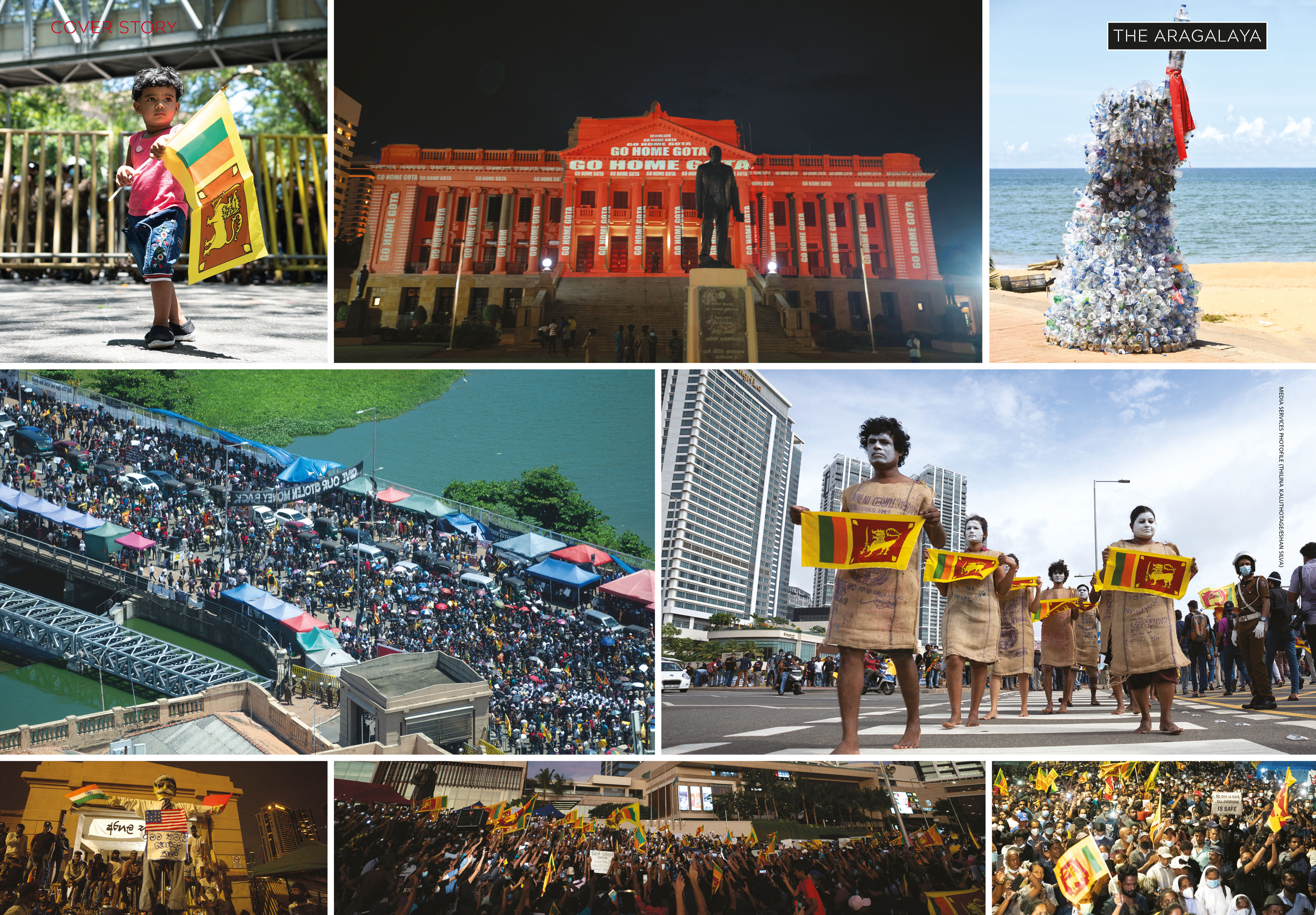
VOICE OF GEN Z
Team LMD visited GotaGoGama and spoke to three gen Z students – here’s what they say
PLEASE DON’T STAY HERE – JUST GO
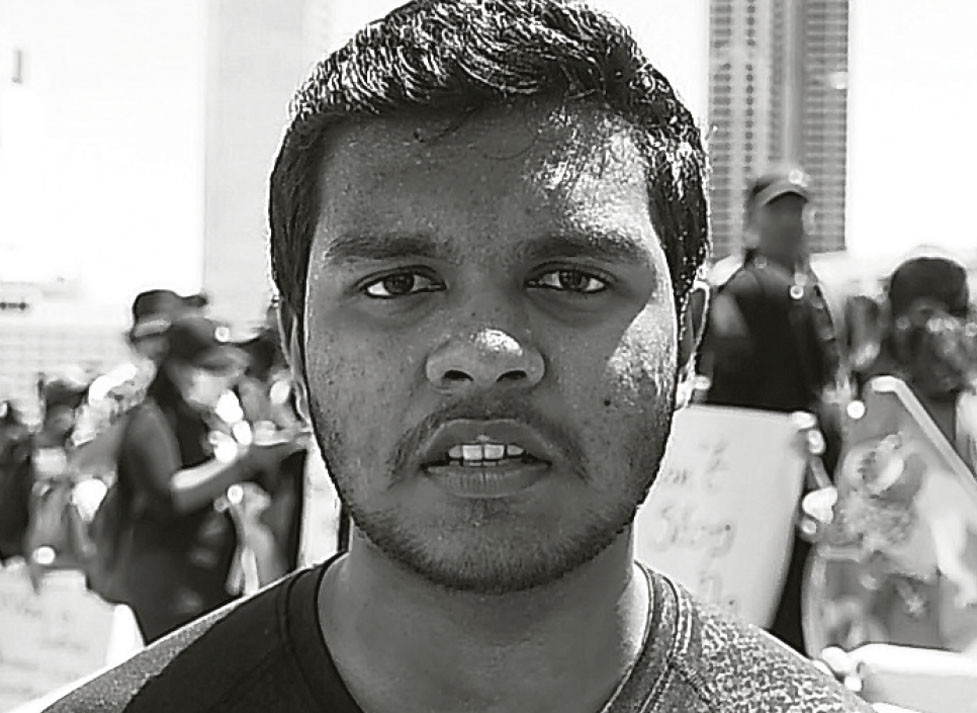 Kaveesha
Kaveesha
Q: As the youth of the country, what do you expect from these protests?
A: As students who are expected to sit for the A-Level exam, we’re unable to attend classes because of the fuel crisis. We don’t have paper for study material due to the paper shortage. We can’t study when it’s dark because of the power cuts. When we go to school, teachers give us homework and lessons to study at home. When we go home, there’s no electricity…
How can we continue our studies like this?
For 74 years, the politicians boasted and took credit for offering free education. With everything that’s happening, where is this free education heading today? Do we even have free education anymore? If we did, do you think these students would come here and shout for nothing?
What we’re asking for is electricity so we can do our studies. Provide fuel so we can travel to school and classes. Mothers are in gas queues. Fathers are in fuel queues. I myself came after waiting in a queue for milk powder.
How can we study like this? Where’s our education?
So we urge authorities to please hand the country over to someone who can do the job. You may even flee to another country but please don’t stay here. That’s all we ask.
Q: There are so many youth at home watching this. What is your message to them?
A: Dear brothers and sisters, we’re here today for you. If possible, please come and help us. If you can’t, support us from wherever you are. What we’re trying to do is build a country for you and me, and our children.
So I urge all mothers, fathers, sisters and brothers to join hands without any racial divisions.
LEAVE WHAT’S LEFT OF THE COUNTRY
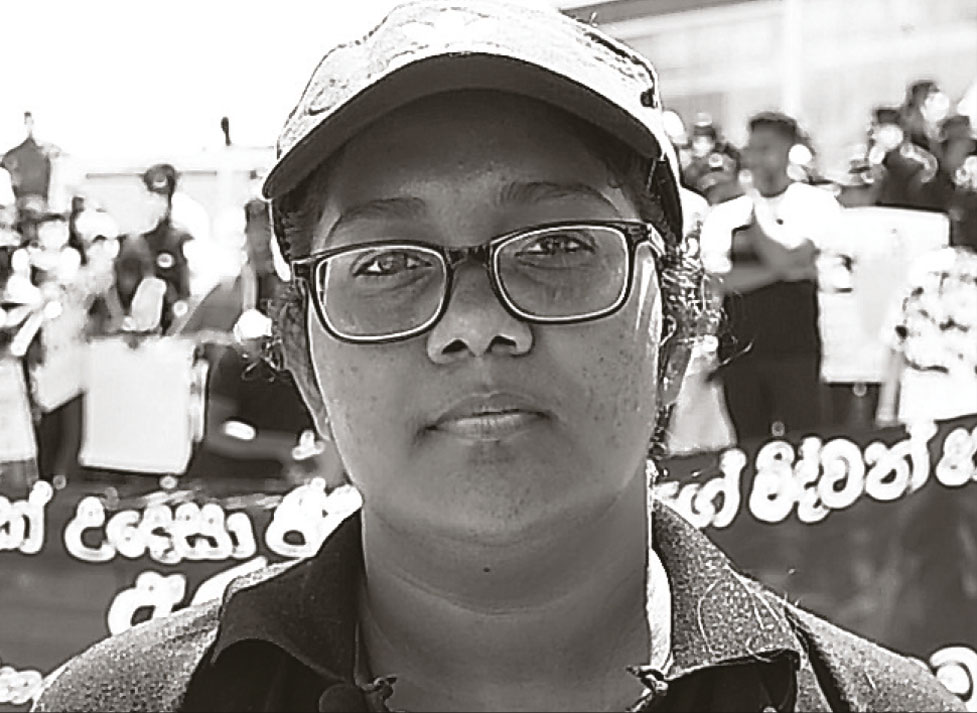 Poorni Dadigamuwa
Poorni Dadigamuwa
We came here today with the theme ‘tharkayen aragalayata.’ We’re A-Level students taking the exam this year; we have less than five months to sit for the exam. It’s sad to have to say that our studies have been interrupted by the crisis. We take a book and sit down to study but the next second, the electricity is gone.
This happens even at tuition classes. Our teachers too are in an uncomfortable position because of this. Not everyone has private vehicles. Most of us travel by bus.
We had classes yesterday but most of my classmates couldn’t attend them. The teacher continued the class for as long as he could – but he had to stop in the middle due to a power cut. All of this affects the younger generation of the country.
Why can’t they understand our problems? Is it because the majority of the 225 in parliament haven’t sat their A-Levels?
From the scholarship examination to the O-Levels, we worked really hard for 13 years. Now we have only a few months to go. But because of the paper shortage, our teachers are finding it difficult to provide us with study material.
The government doesn’t really care about any of this. The entire country is asking them to leave so I don’t understand why they’re still here. I’m studying economics for my A-Levels and most of my classmates are here. It looks like the politicians don’t even have a basic sense of economics.
We don’t have to study theory about inflation and the causes for it when it’s happening in front of our eyes. It’s tragic how they don’t see this. If they can’t see it, they should hand it over to someone who can… and leave. Why are they still here? Is their greed for power bigger than their concern for the country?
While we haven’t voted for anyone yet, in the future we will. But to vote and elect a new government, we have to have a country. We beg the leaders of the country – leave what’s left of this country and just go… please.
We need a future. Those who can afford to leave the country will move abroad but not everyone can do that. When that happens, Sri Lanka will be left with a population that is largely uneducated. The brain drain will impede the development of the country. If you look at world history, there are rules for those who travel on bicycles.
In our country, they come to power on a bicycle but leave with millions and millions of people’s money. Why can’t they understand what even a small child can? That it is wrong.
If you can’t, just go home. If you came to power with the people’s mandate, now respect the same and leave. I’m really sad. This is the time we could spend studying. We’re not here because we don’t have anything better to do. We came here to protect our rights. Listen to our voices.
Make space for us. I’m not speaking only what’s on my mind; I’m speaking on behalf of all the students here today. We came here with a lot of difficulties – some even missed their lectures. Give us justice. If you can’t do the job, leave. That’s all we ask.
Q: As an educated younger generation, where do you think the country is heading?
A: At this rate, all educated youth from the middle, upper middle and higher classes will move abroad, creating a massive brain drain. And the country will be left with people with less educational competencies.
When you visit rural areas beyond this urban mindset, you won’t believe what these people go through. Of course, politicians like to keep things this way. When those who have studied in Sri Lanka work in another country, they contribute towards developing it. Our politicians can then easily buy those who aren’t knowledgeable and have remained here with a meal or a bottle of alcohol.
When there’s an election, the politicians go to the villages and tell those poor people a fairy tale and get their votes. After the election, you can’t find them. If they complete a project, they would have stolen money that could pay for another 10 projects. If this continues, we won’t have a country to live in.
We boast about our proud history but no one has learned anything from it. They’re not willing to look at the history and make changes in the present to shape the future.
Q: As for the future of the country, what’s your message to the youth who are not here today?
A: Well, they could have their reasons for not being here – economic or otherwise. Don’t be sad that you’re not here physically.
Hang in there and have faith. We can do this. We can build our country again. This country is an island of treasure. What don’t we have here? We have given control of the country to a bunch of idiots. That’s why we’re here today.
My message to the youth is as follows: ‘Don’t give up. Keep going until our demands are met.’
POLITICIANS CANNOT DIVIDE US
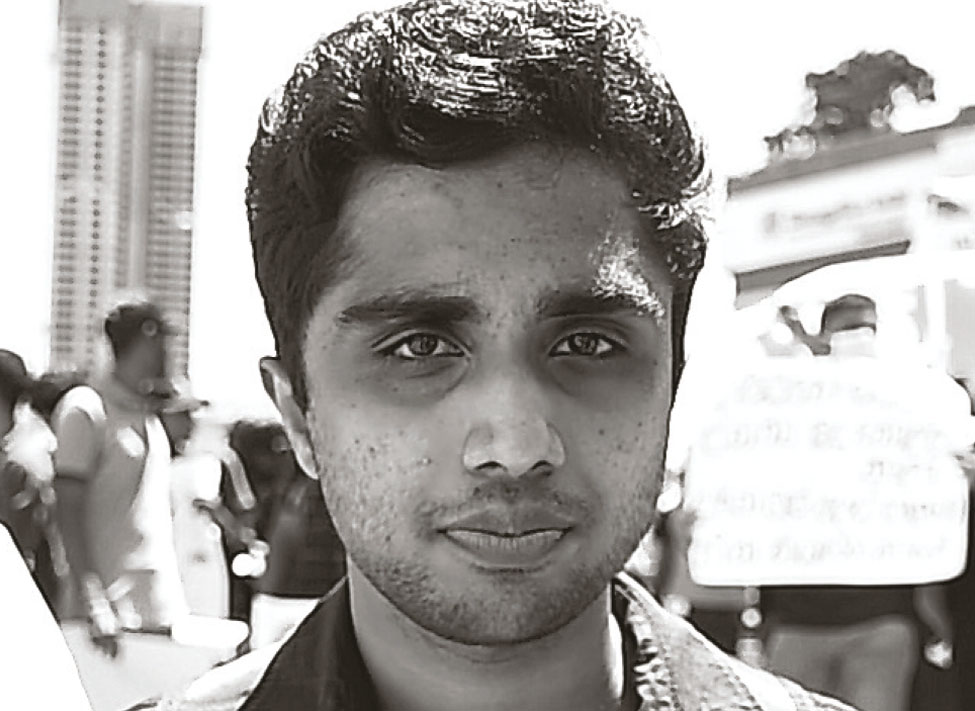 Akila Mallawaarachchi
Akila Mallawaarachchi
Q: What’s the purpose of this protest?
A: For 74 years, this country has entertained theatrical politics. We have never had a politician who’d stay true to what he or she said on a stage. We have never had a politician who treated everyone equally despite their race, party or caste. We have never had equal rights.
In other countries, politicians have cats and dogs as pets. Here, they keep thugs, drug dealers and businesspeople on their laps as their pets. Those who campaigned for political parties may have been favoured but people in power have never ever listened to the ordinary citizen.
Politicians make sure that voters are bought for a packet of lunch, a bottle of arrack, an asbestos sheet or some bathwater, so that they can continue with their corrupt ways.
Our politicians get their thugs to destroy a shop owned by a Tamil person and another would point fingers at the Sinhalese community. In the same way, another politician would get someone to destroy a business owned by a Sinhalese person and point fingers at the Tamil community. Later, they pay each other back.
At election time, they create chaos with issues that don’t exist, just to manipulate the intellectual voter into an emotional frame of mind. That time is over. We won’t let politicians divide us anymore.
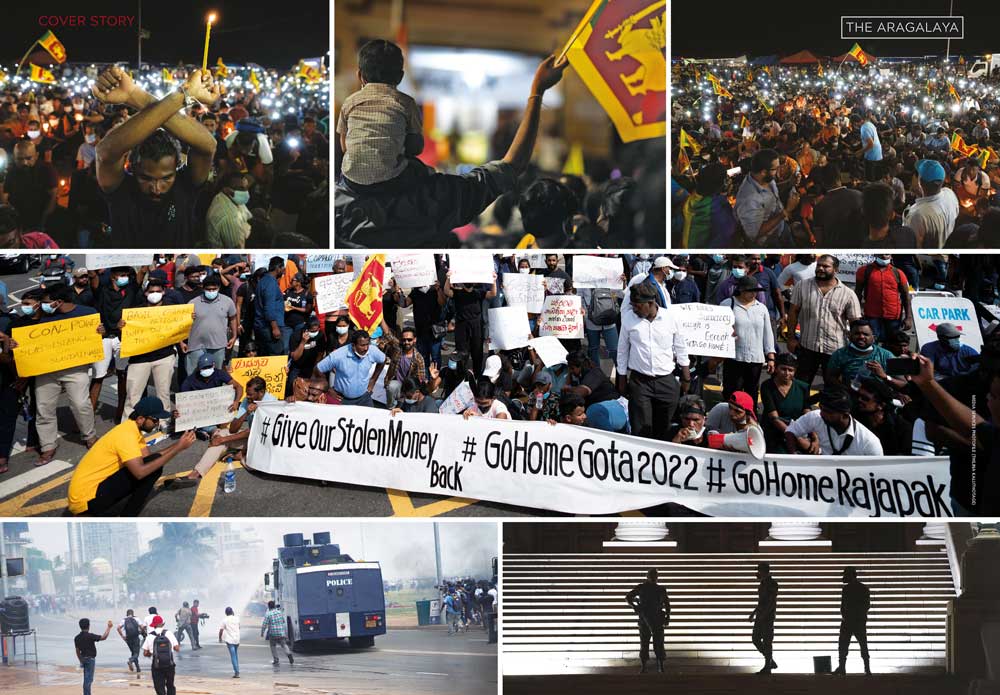
DIRECTION SRI LANKA
Team LMD joined the protest march organised by a group of professionals representing Direction Sri Lanka – we spoke to four of them
ENOUGH IS ENOUGH
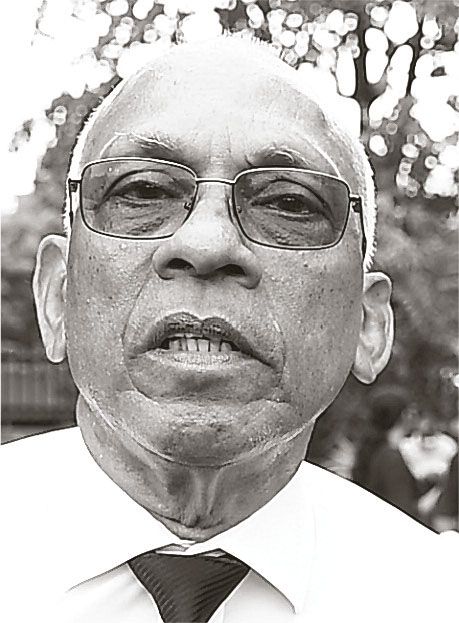 Geoffrey Alagaratnam
Geoffrey Alagaratnam
Former President
Bar Association of Sri Lanka (BASL)
Q: Why are you here today?
A: We are here because we’ve formed what you would call a voluntary group of professionals – Direction Sri Lanka. Our aim is to give direction to whatever the present struggle involves because we know that the youth at Galle Face Green are carrying out a beautiful struggle for change.
What they’ve said is that we’ve had 74 years of bad politics and they want a change for the better. They want a unified Sri Lanka without divisions of race, creed or language. They want fairness; and they want to wipe out corruption.
So we thought that since the youth pursue their struggle, rather than let things slide – which could even lead to anarchy – we have to be responsible professionals even now as we’ve failed to be so over the years. So we have come forward to join hands [with them].
It started with many doctors and lawyers getting together, and working with the youth and asking them what they want – and trying to put down their thoughts in legal terms, to see how we can take certain proposals forward.
Direction Sri Lanka has already publicised its proposals in the media, on social media and on various other platforms. Basically, what they want is for the end of the present presidency – for the president to ‘go home,’ meaning vacate office.
They want an interim cabinet acceptable to all, which will help us tide over the economic crisis and provide urgent economic relief to the people who are suffering. They want a long-term goal of developing and changing the system, to ensure fair governance and equality for all with proper institutions, so there cannot be political interference; and to eradicate corruption overall.
As you will see from today’s march, professionals from many disciplines and varying ages have joined us to say ‘enough is enough.’ We want a radical change.
Q: Do you think the politicians are taking this seriously?
A: I would think they’re trying to show a bold face; and trying to say this is just a few people shouting. But it is really gaining momentum and I think they sense that it’s serious – but as usual, some of our politicians are trying to deny the voice of our people. They think that they can go on by not paying heed and sticking to their positions.
We hope that they will listen and realise that they’re not wanted; that they should quit and leave the country in peace, rather than be the people who create a state of anarchy and lawlessness.
And that is what we are aiming for: to avoid any lawlessness and anarchy, and to see that there is a peaceful change for the better.
PULSE OF THE PEOPLE
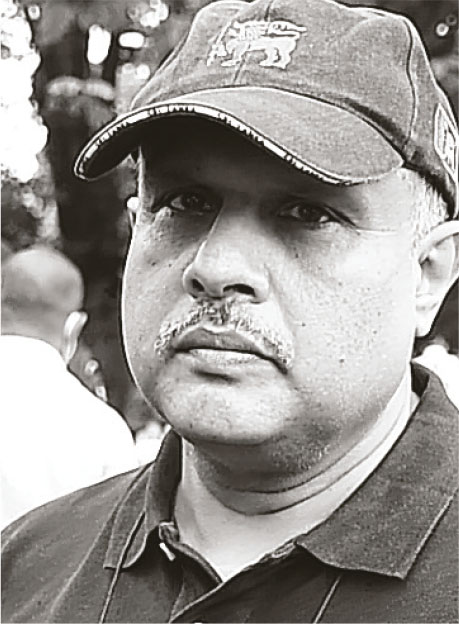 Dr. Ruvaiz Haniffa
Dr. Ruvaiz Haniffa
Former President
Sri Lanka Medical Association (SLMA)
Q: Why is Direction Sri Lanka protesting on this day?
A: We are at a critical time for this country; the youth have risen and they’ve done a wonderful job of bringing about a massive paradigm shift in our socio-political culture.
They have many slogans, which we need to put into action if we’re to move forward as a nation. So as a group of professionals, we thought that if the youth’s slogans need guidance and technical assistance in operationalisation, we should assist.
So lawyers, doctors, architects, accountants, bankers and IT professionals have come together, and drawn up a statement that would offer direction to the youth of Sri Lanka.
This is why we are here; and we want the public to know that we’re with them in all their demands – including the resignation of the prime minister and president, and the formation of an interim administration to get us out of the economic mess we’re in.
Q: As for ‘real change,’ what do you want to see in terms of this demonstration?
A: What we want to impress upon these people is the change that’s on the way. We must not lose momentum. By definition, change is something that is new; not what something was. So we need a new picture – economically, politically and professionally.
As professionals, we are not very involved in politics or in the administration of state affairs. But we too feel that ‘enough is enough.’ Silence is always an option but is it the right option at this moment?
We met as a group and decided that silence isn’t the correct option.
If we want to see change, we need to be the change we want to see. So that is what you are seeing here. We are walking to Galle Face Green from here; and we will have a very peaceful demonstration there. We want to do it within the legal framework and set an example, as the youth are doing.
Q: What are the main takeaways you would like to see from the demonstration?
A: Ours is no different from the vision of the youth at Galle Face Green. All the credit goes to them for having brought this to our notice and we have joined hands with them.
There are basic things that we want. As the tag line suggests, one is Gotagohome, which means the current president leaves office. The prime minister has to resign. And the government has to resign.
An interim governance structure has to be brought in to guide us through this process but that we can work out later. We want this walk to energise the people and the youth’s confidence that the president has to go, the prime minister has to go, the government has to go – that is the message we want to convey.
Q: Are the politicians taking the protests seriously?
A: Absolutely not. They don’t seem to understand the pulse of the people; the pulse of the nation. They’re politicians for themselves, not for the nation.
With all this hullaballoo going on around the country which is being streamed over the media across the world, if they cannot get their act together in the best interests of the people, we cannot say they’re doing the job which they were elected to do.
They are not hearing our voices; they have not shown that they’ve heard it up to now. We hope that they will hear it in the future.
REAL ACCOUNTABILITY
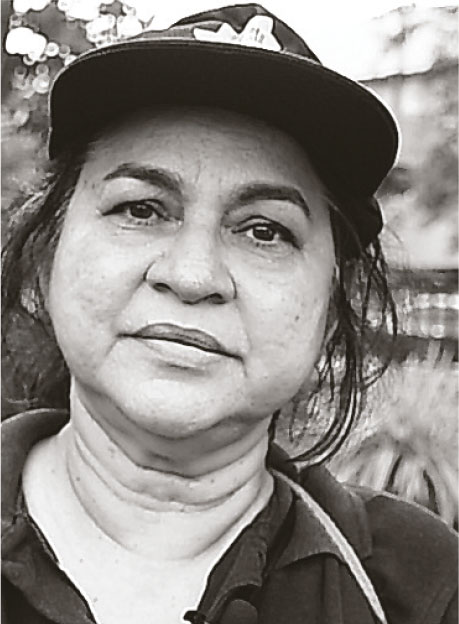 Michelle Fonseka
Michelle Fonseka
Member of the Sri Lanka Institute of Architects (SLIA)
Q: What do you want to see in the end as far as real change is concerned?
A: What we see is corruption, nepotism and no accountability, right? So I would like to see real accountability, assets being declared and so on, because you can see that people from every strata of life are coming to express themselves fearlessly.
Q: And why are you here today?
A: I joined the professionals’ movement here because I can see what’s going on in our country now; and it’s very sad to see that so many essential items aren’t available – and that there are people in long queues; that there is no food for people to eat.
So I’m here not only for myself’ I’m here for all the people who are going through all of this.
HOPE IS IN THE AIR
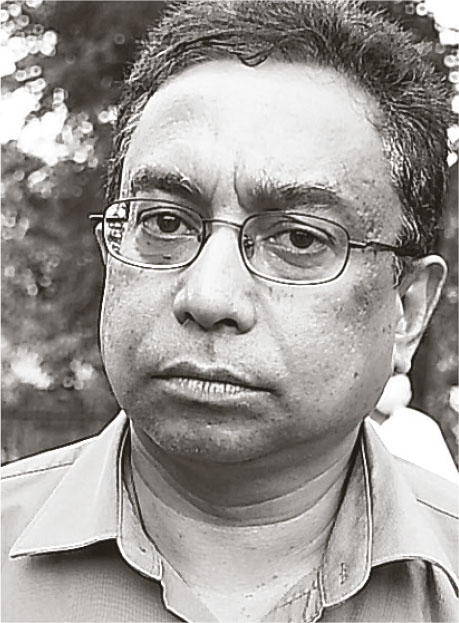 Dr. Ajith Amarasinghe
Dr. Ajith Amarasinghe
Member of the medical profession
Q: Do you think the business community is showing solidarity at this moment?
A: I don’t think so; not at this moment. They have not contributed significantly towards the struggle. It is the business community that is most affected by certain decisions that were taken by the government.
They’re the most affected people so I think they should come forward and voice their concerns about the direction the economy is taking.
Q: How impressed are you by the fact that the protests have been peaceful so far?
A: It’s quite impressive. I belong to an age when there were violent demonstrations especially against certain institutions such as those from the private sector. Those times were very violent and aggressive, and I can’t believe the way the new generation is going.
We actually have hope with this new generation – the protests are very peaceful, very creative and very focussed on what they’re asking for.
Q: Do you feel that the politicians are taking the protests seriously?
A: I think they pretend that they’re not taking the demonstrations seriously; but when you look at the actions they have taken, I feel they’re taking it very seriously.
They are probably even sleep deprived.
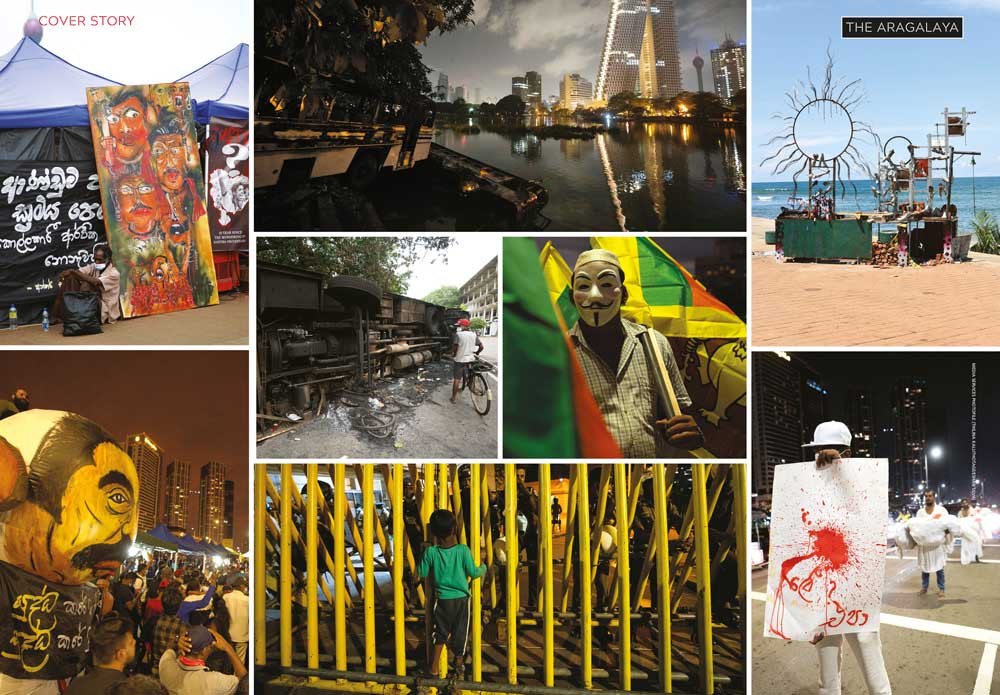





Leave a comment